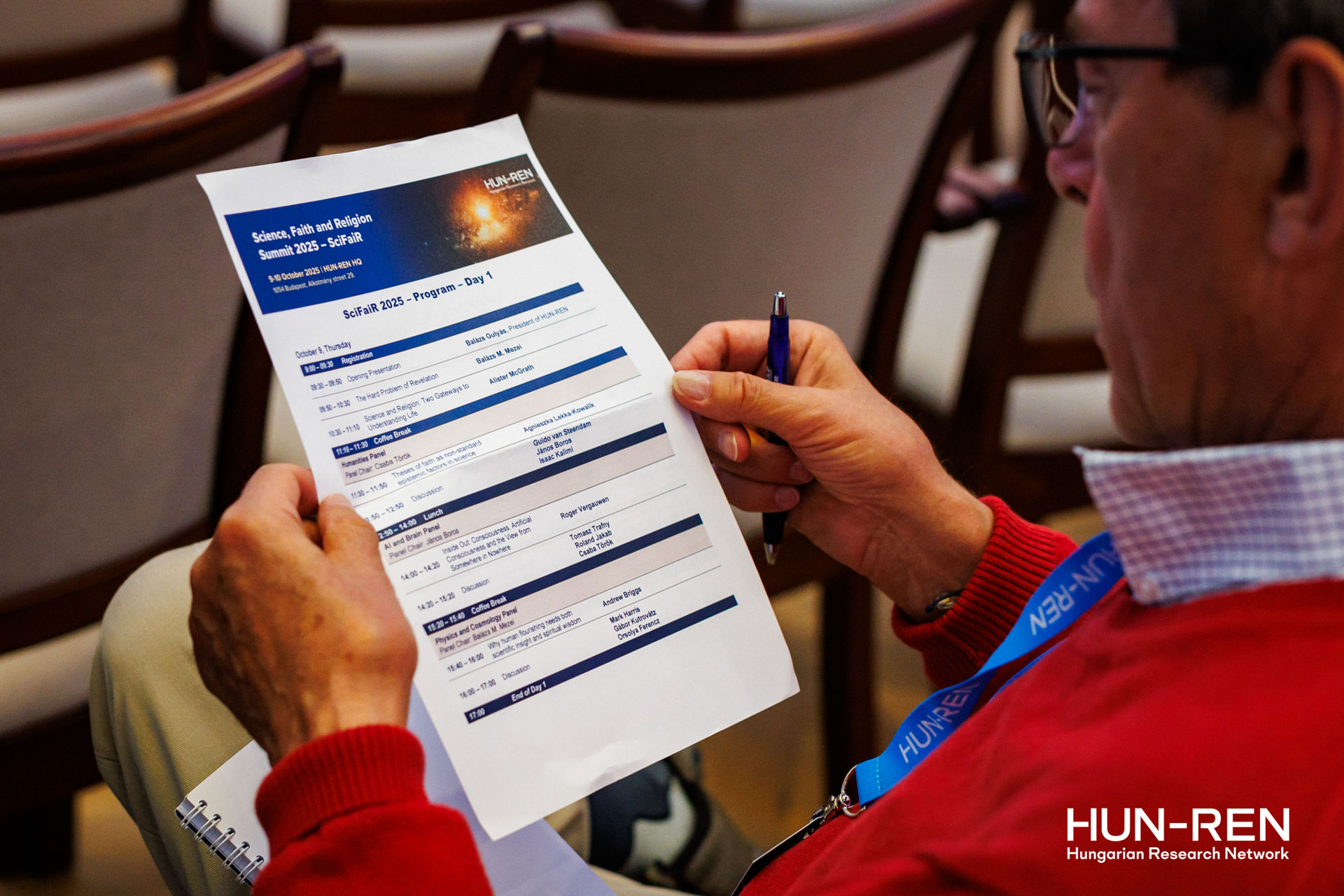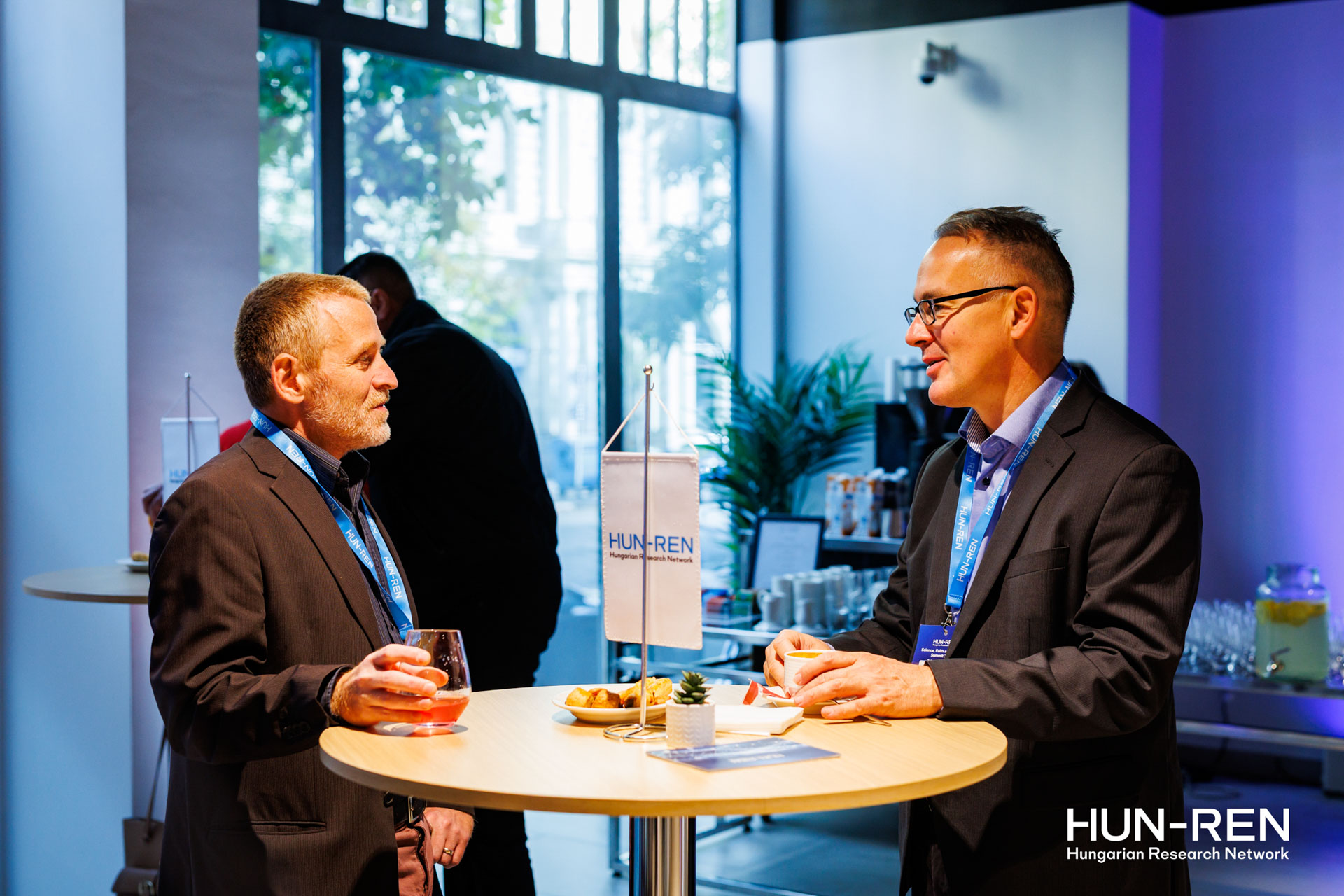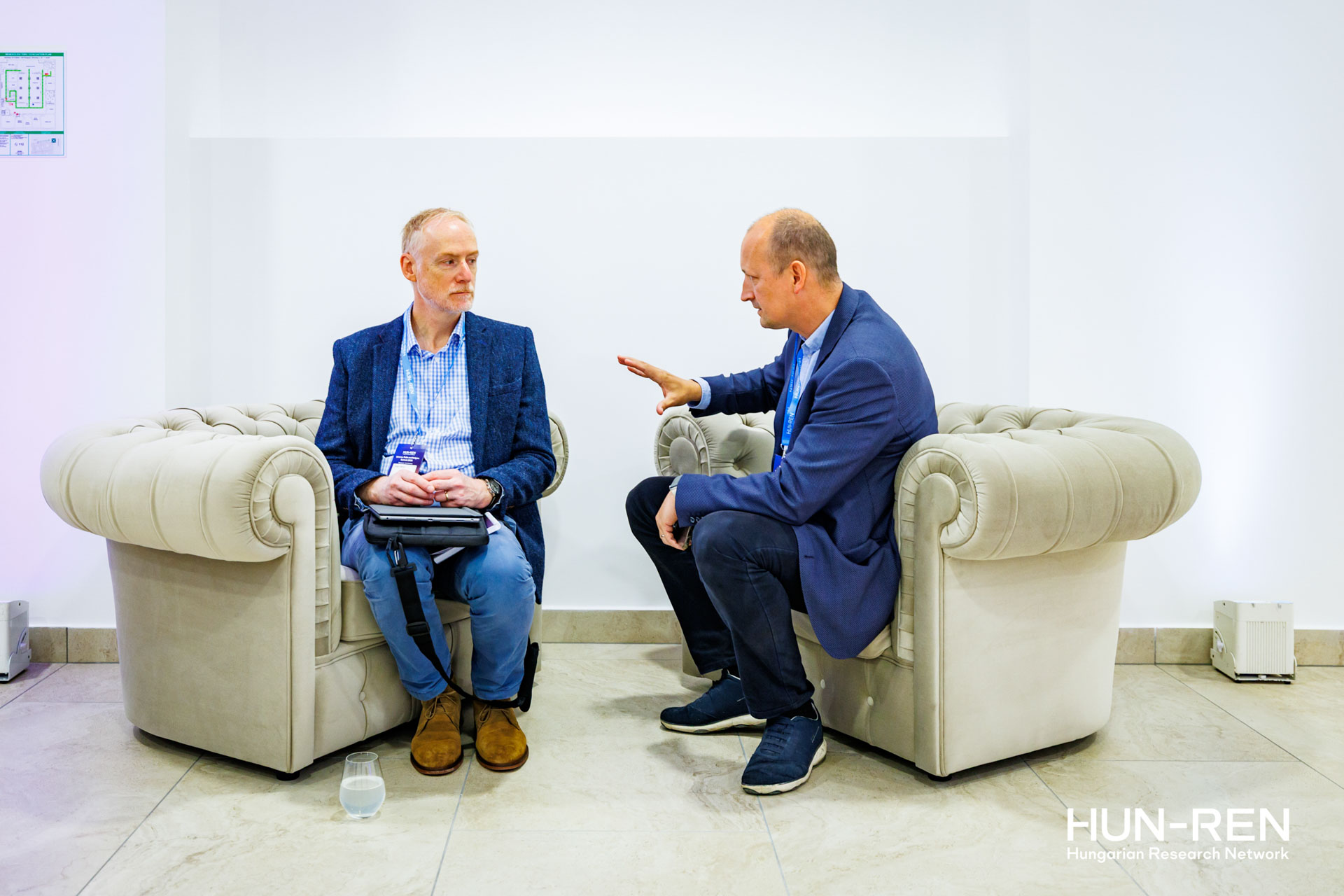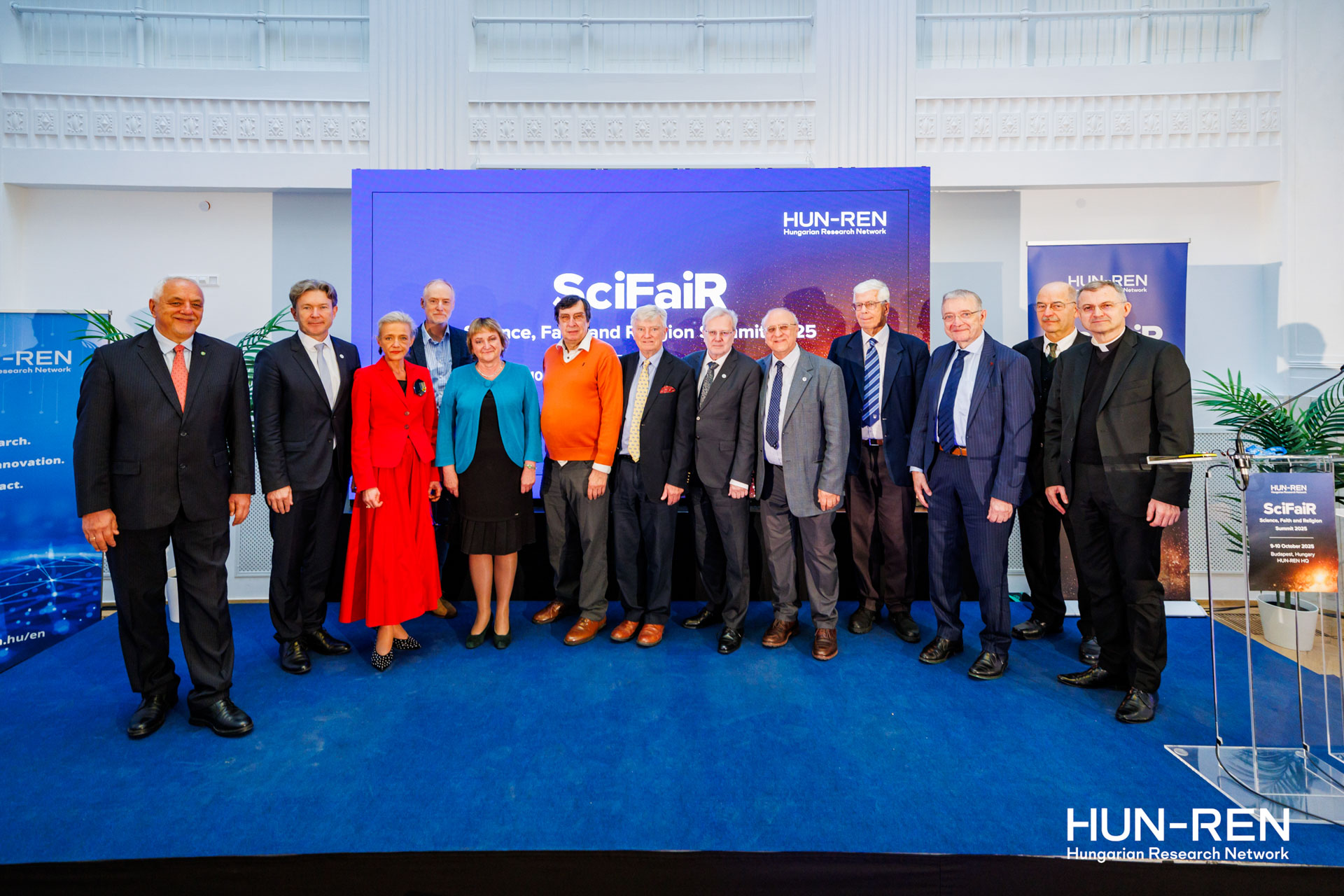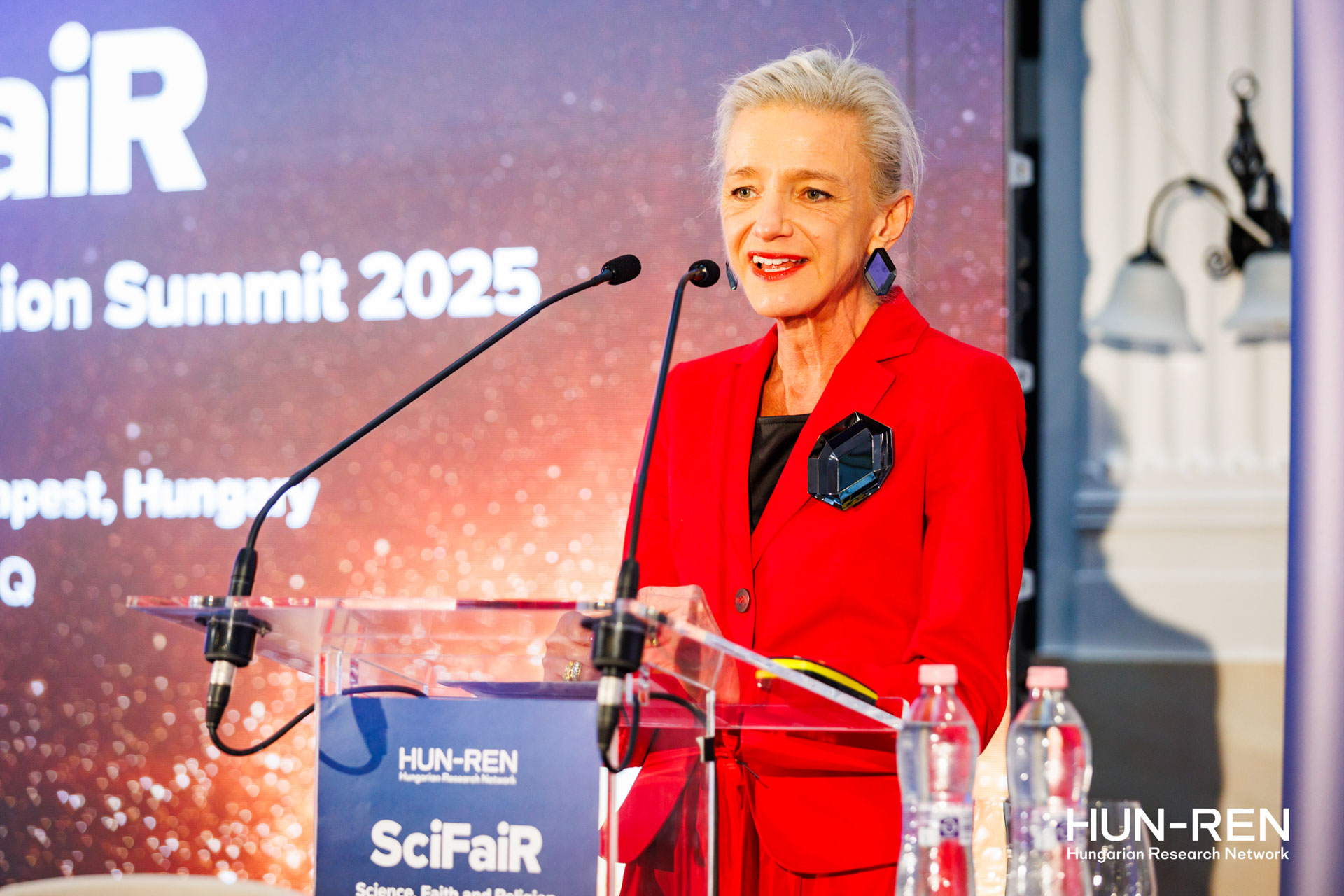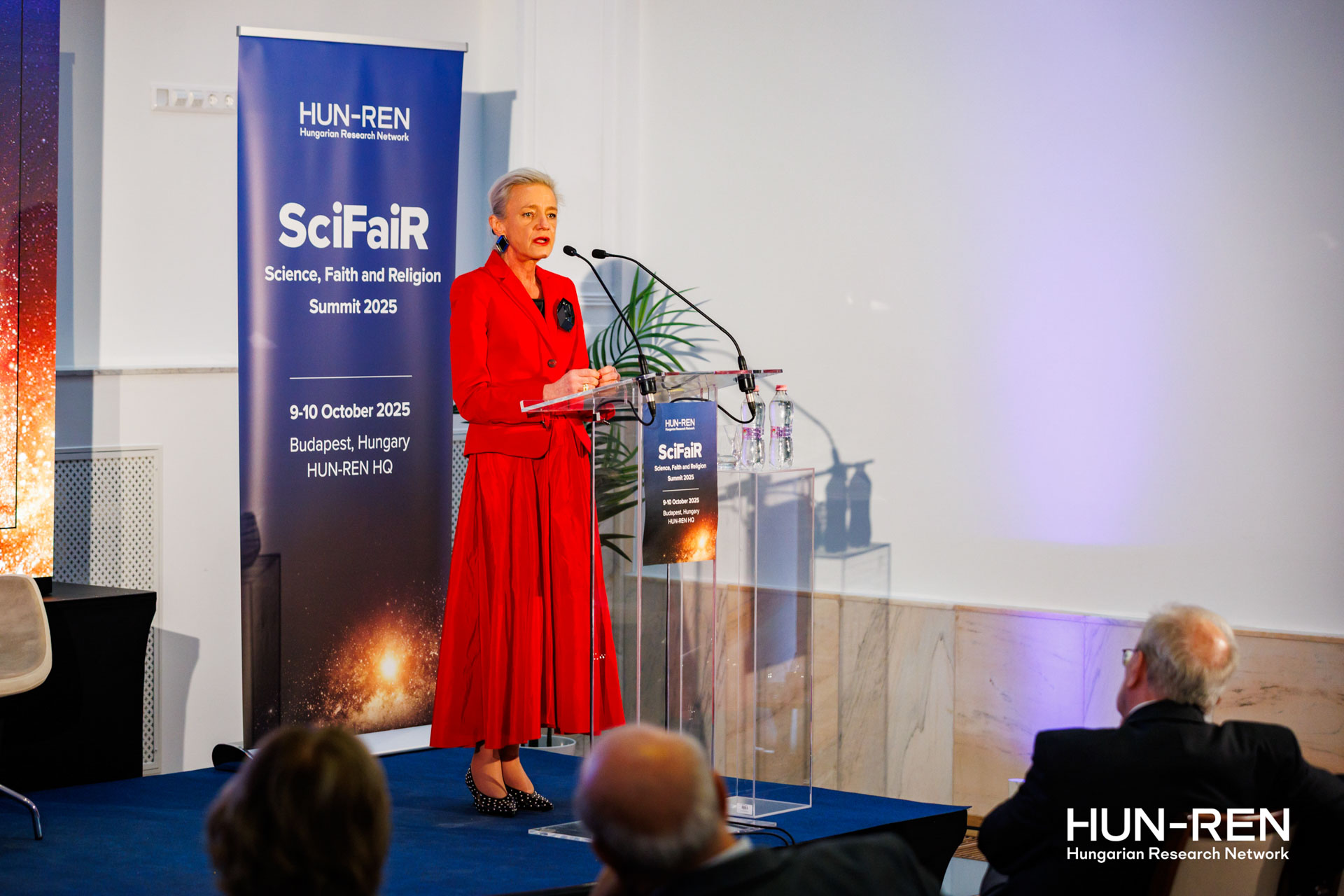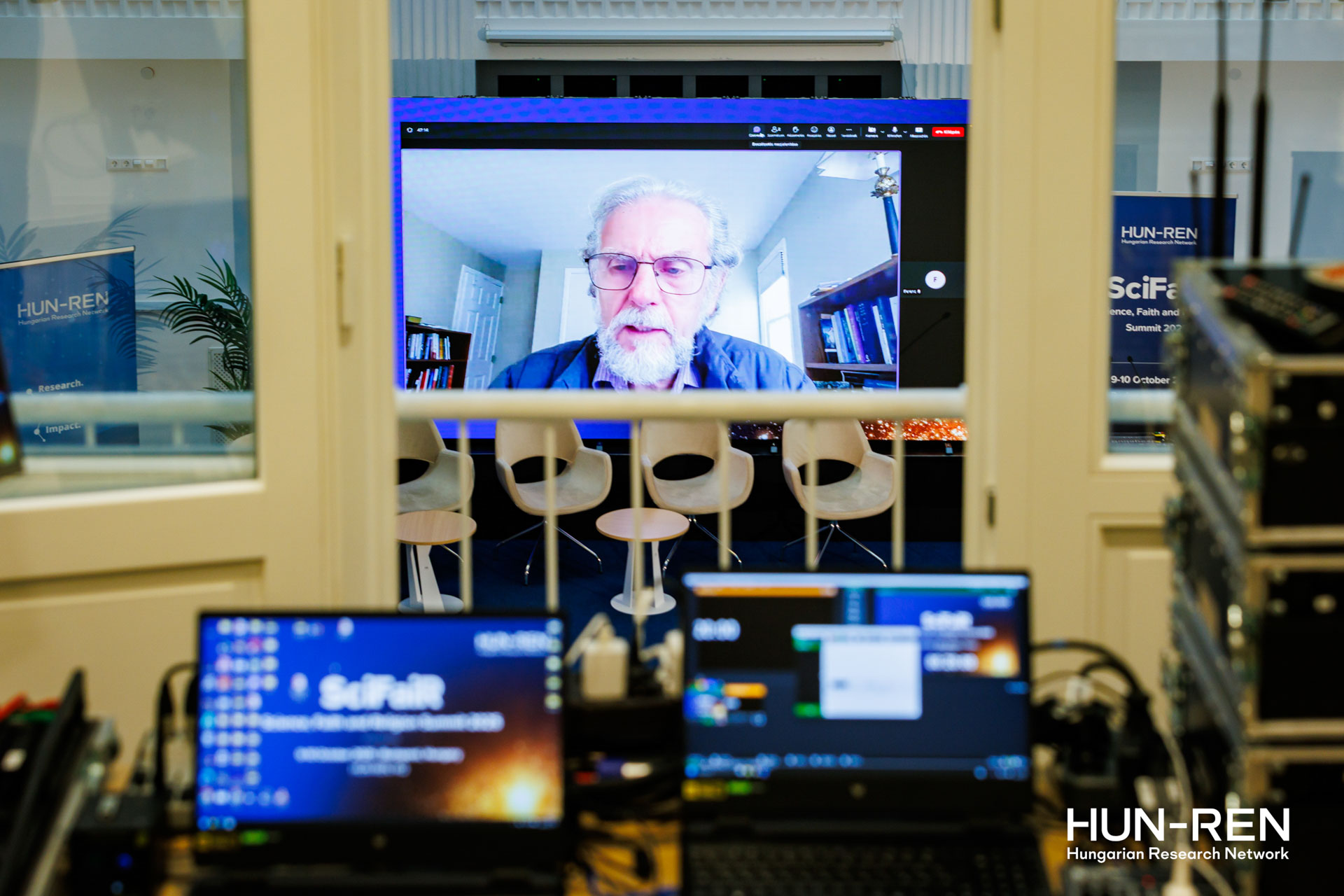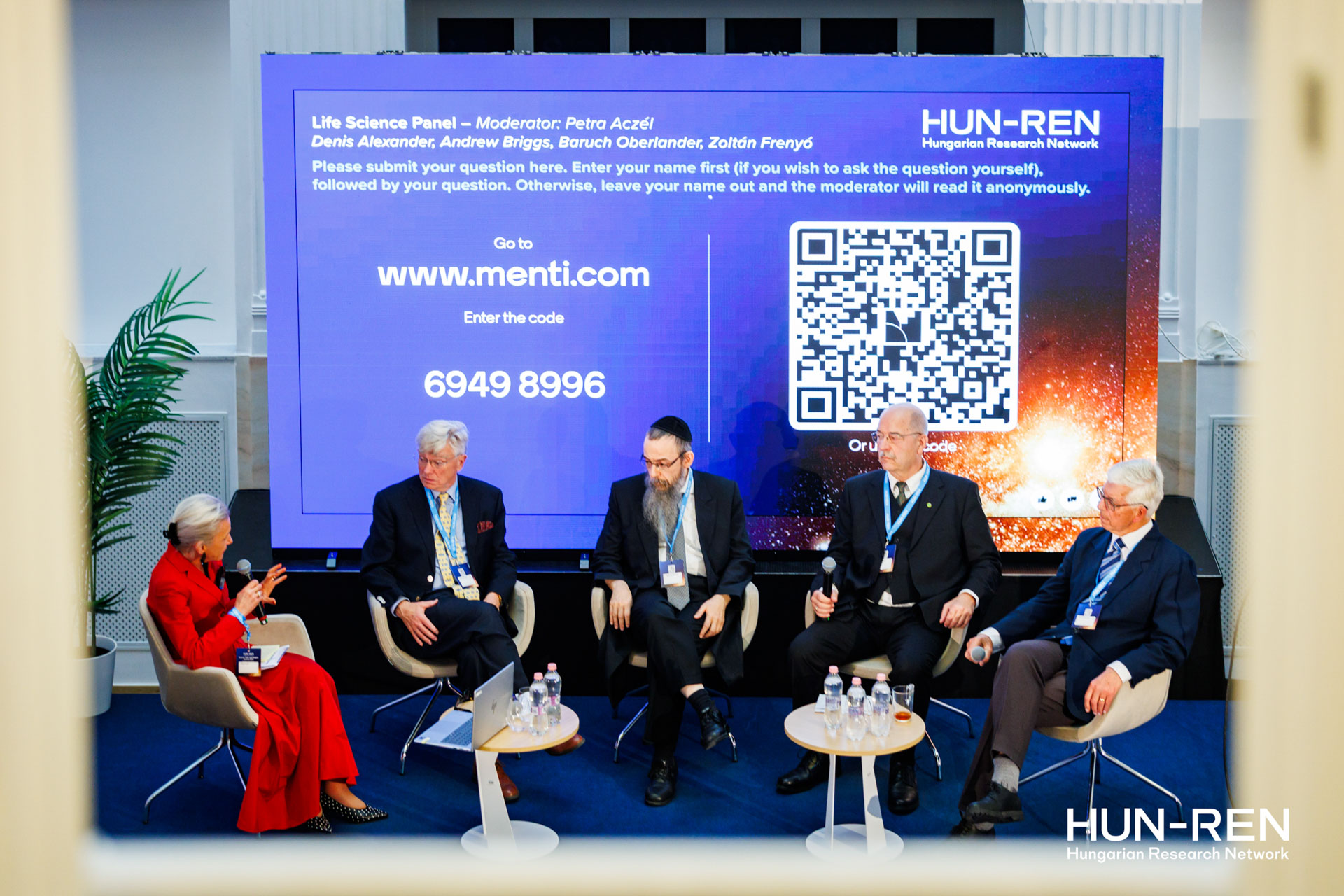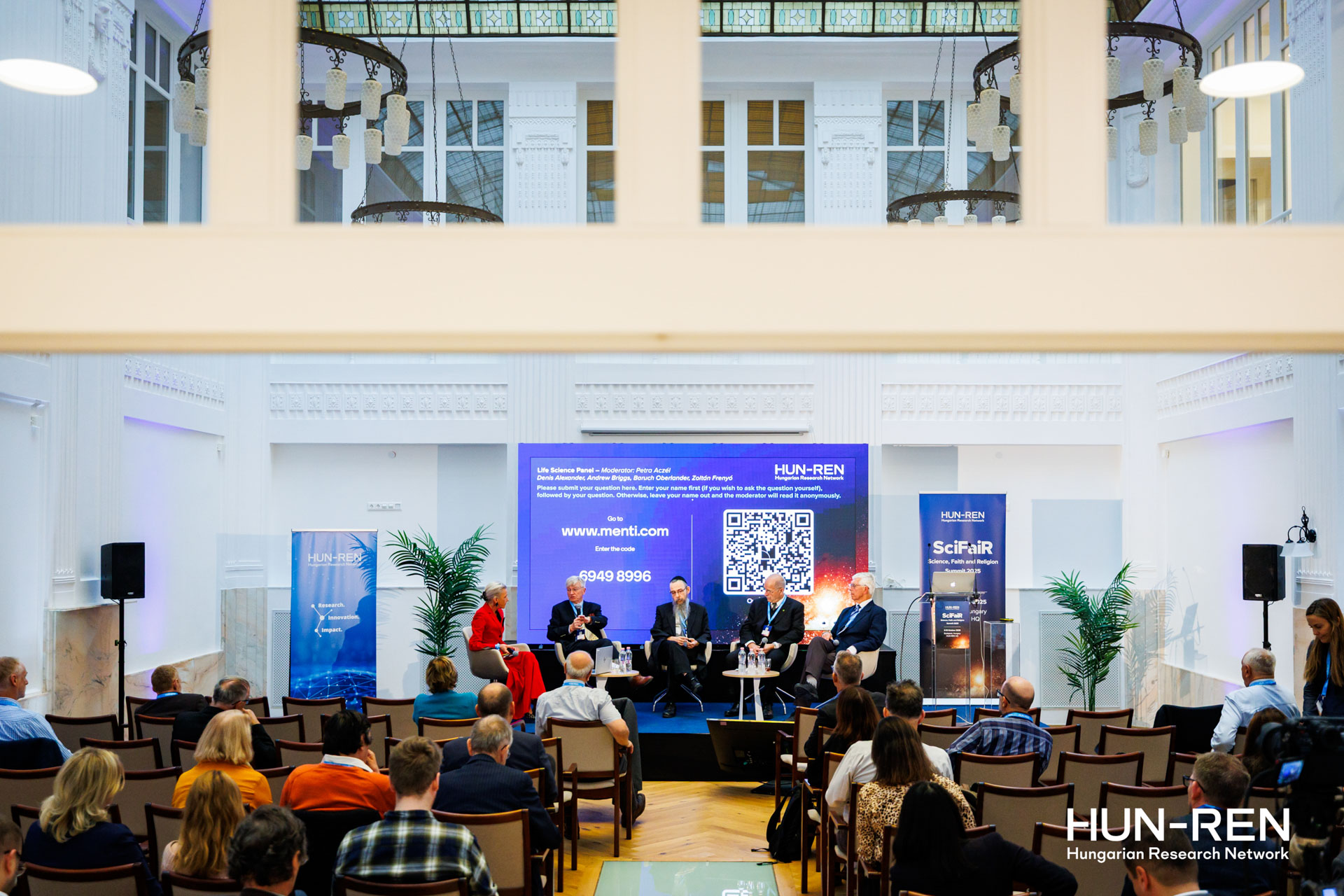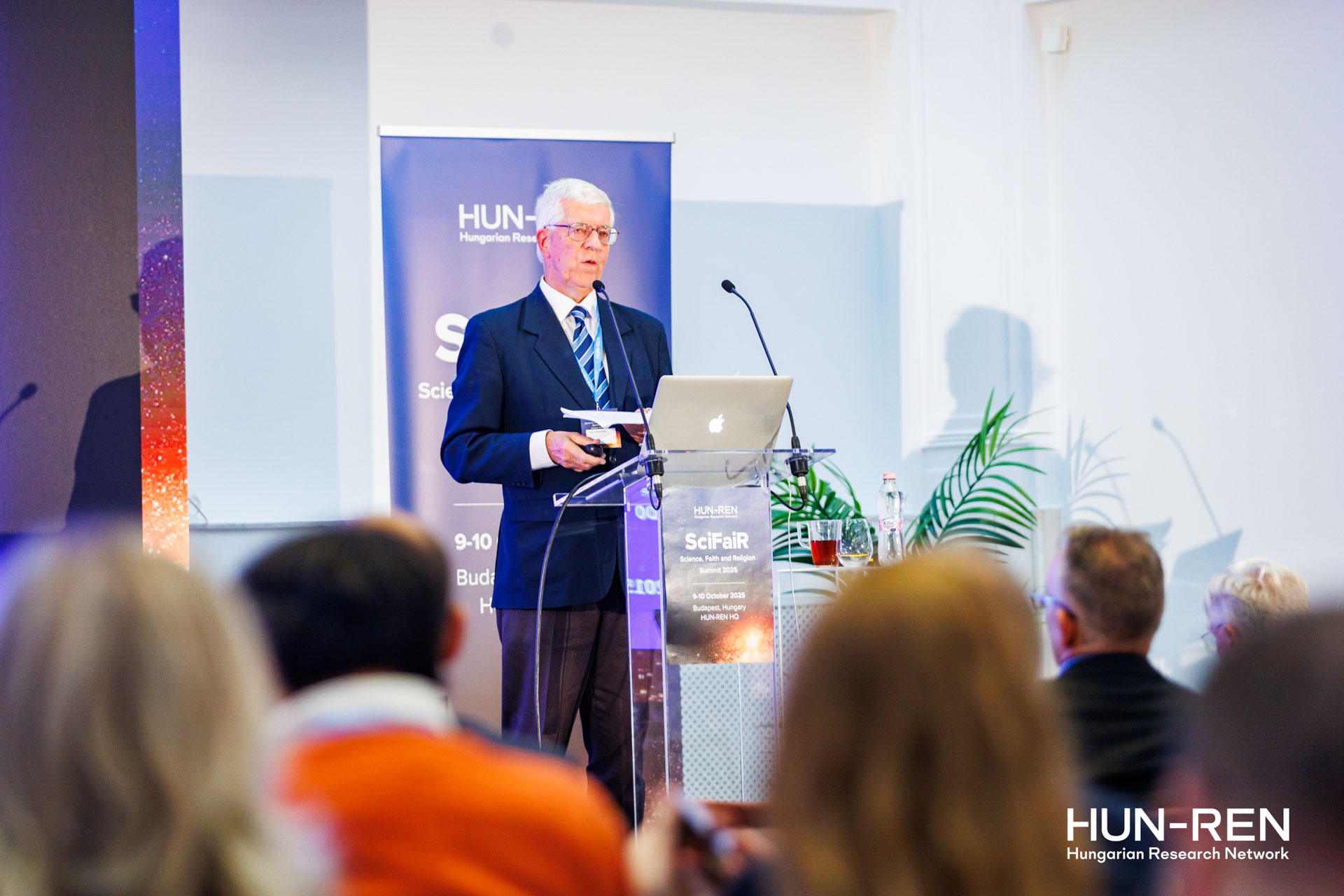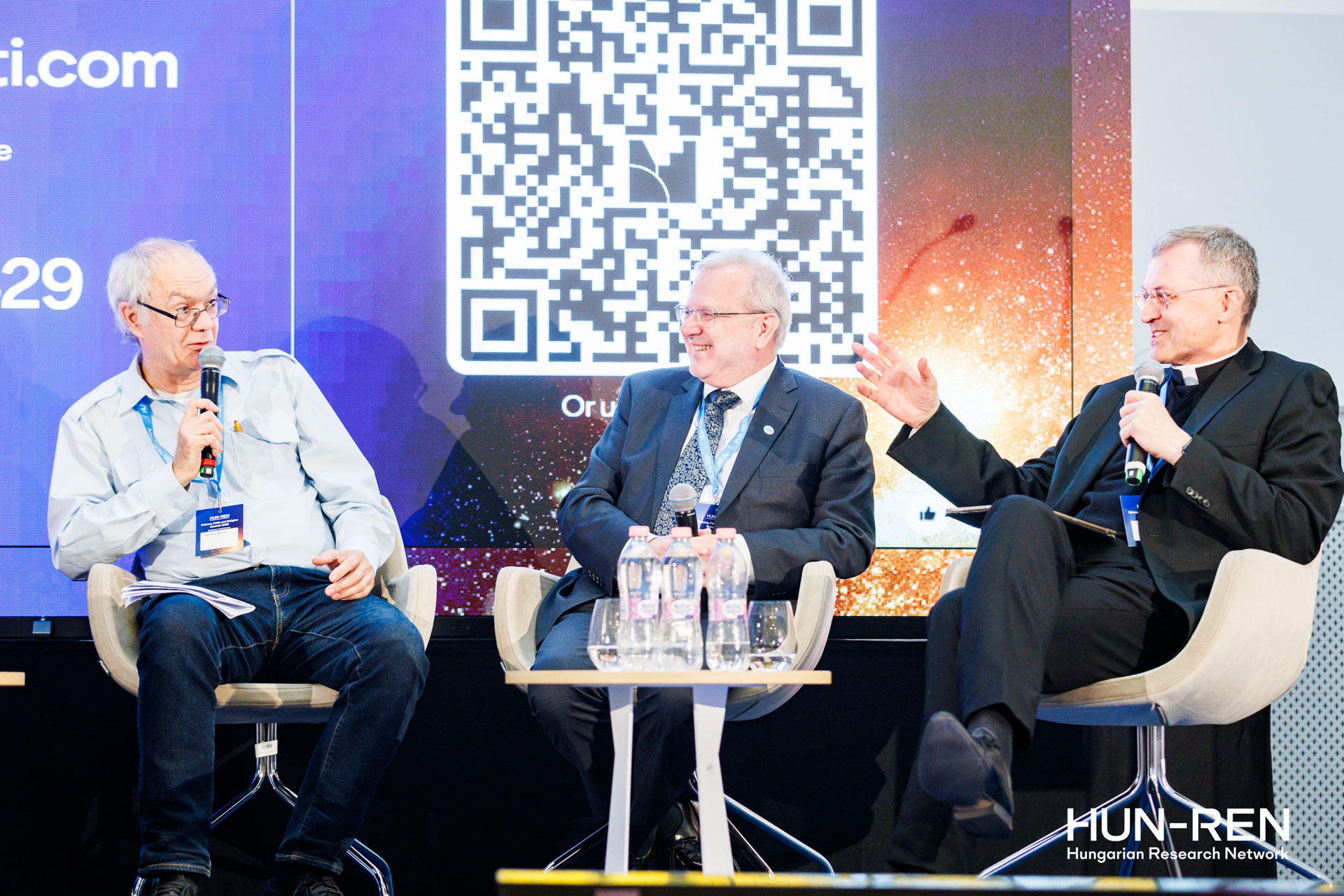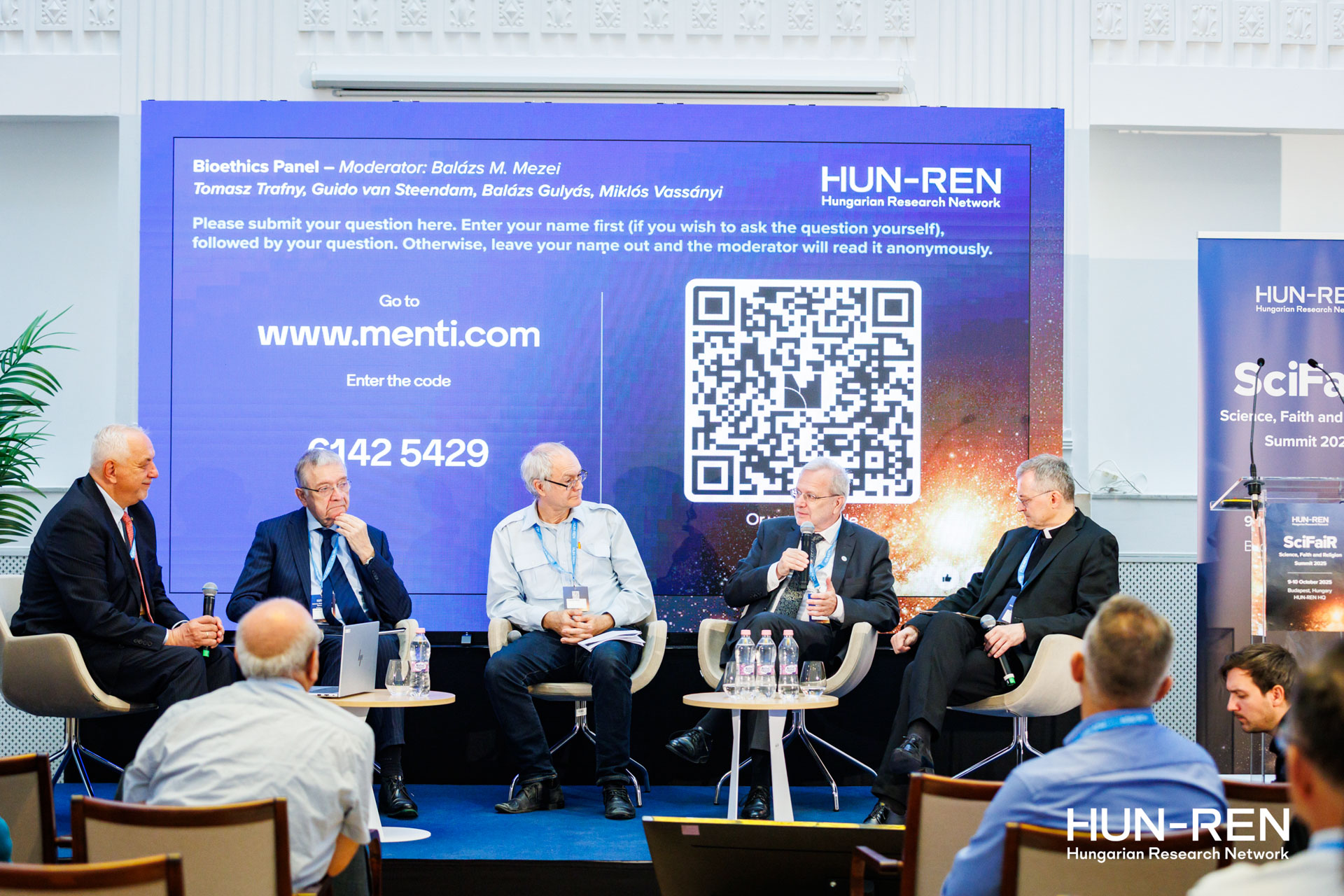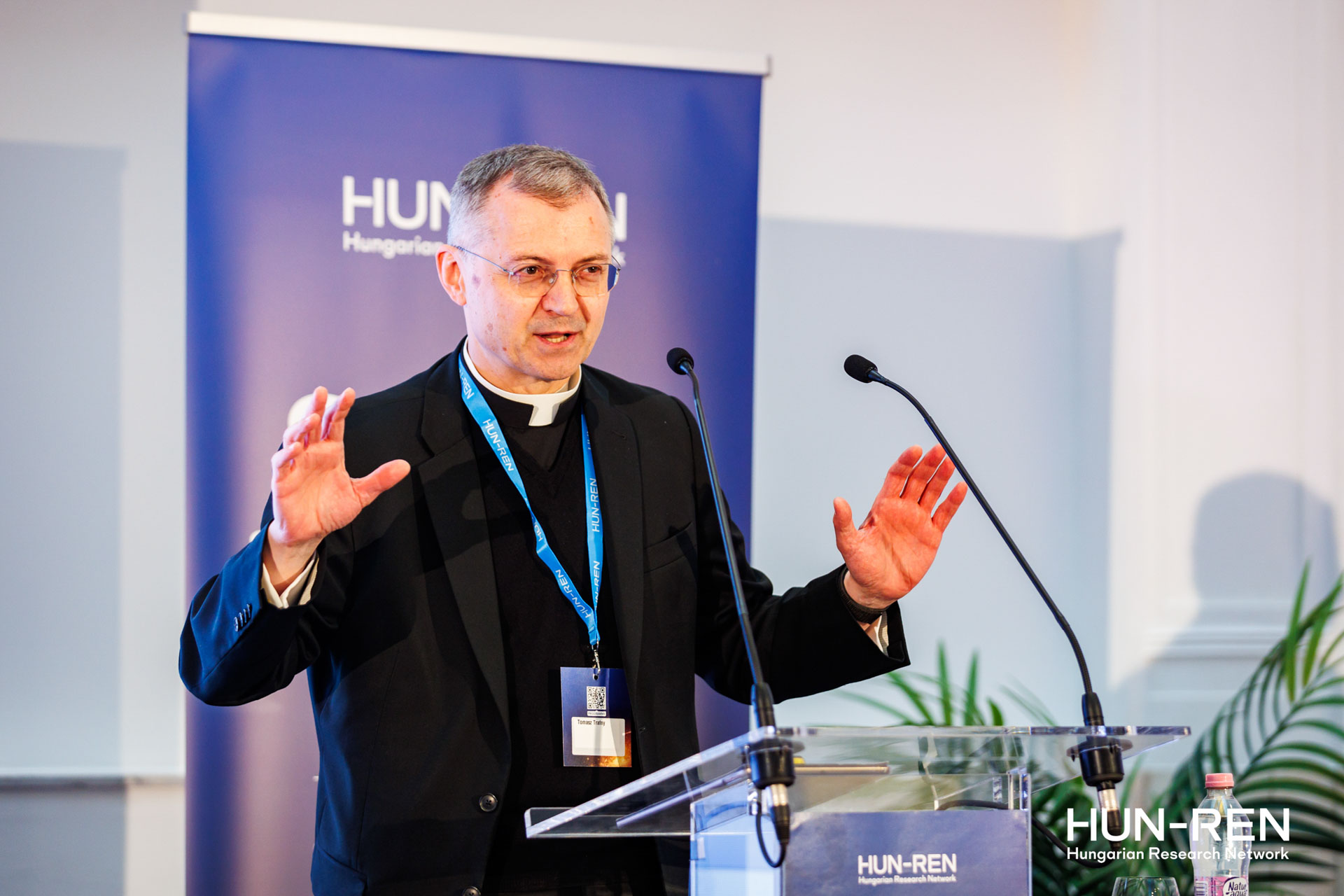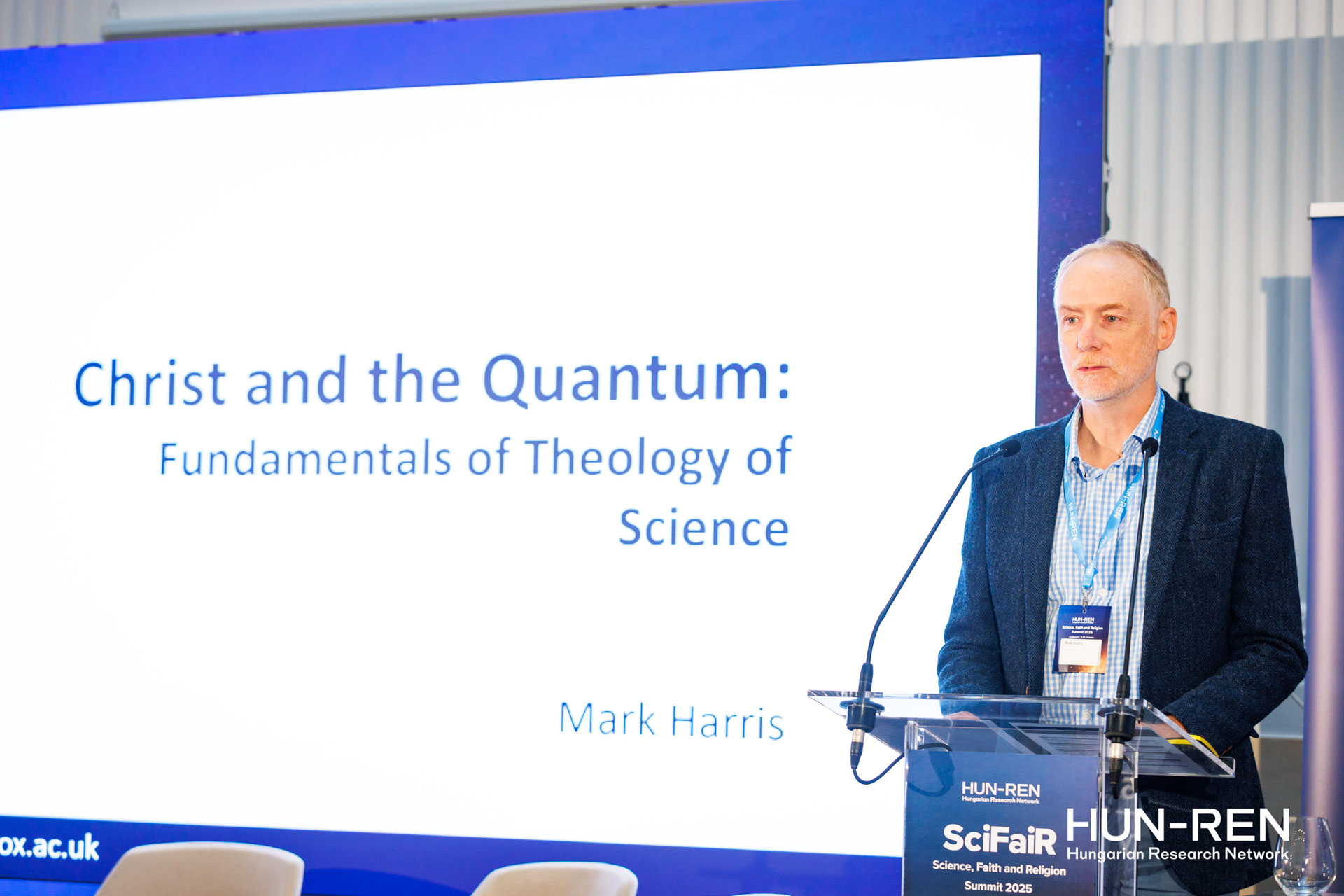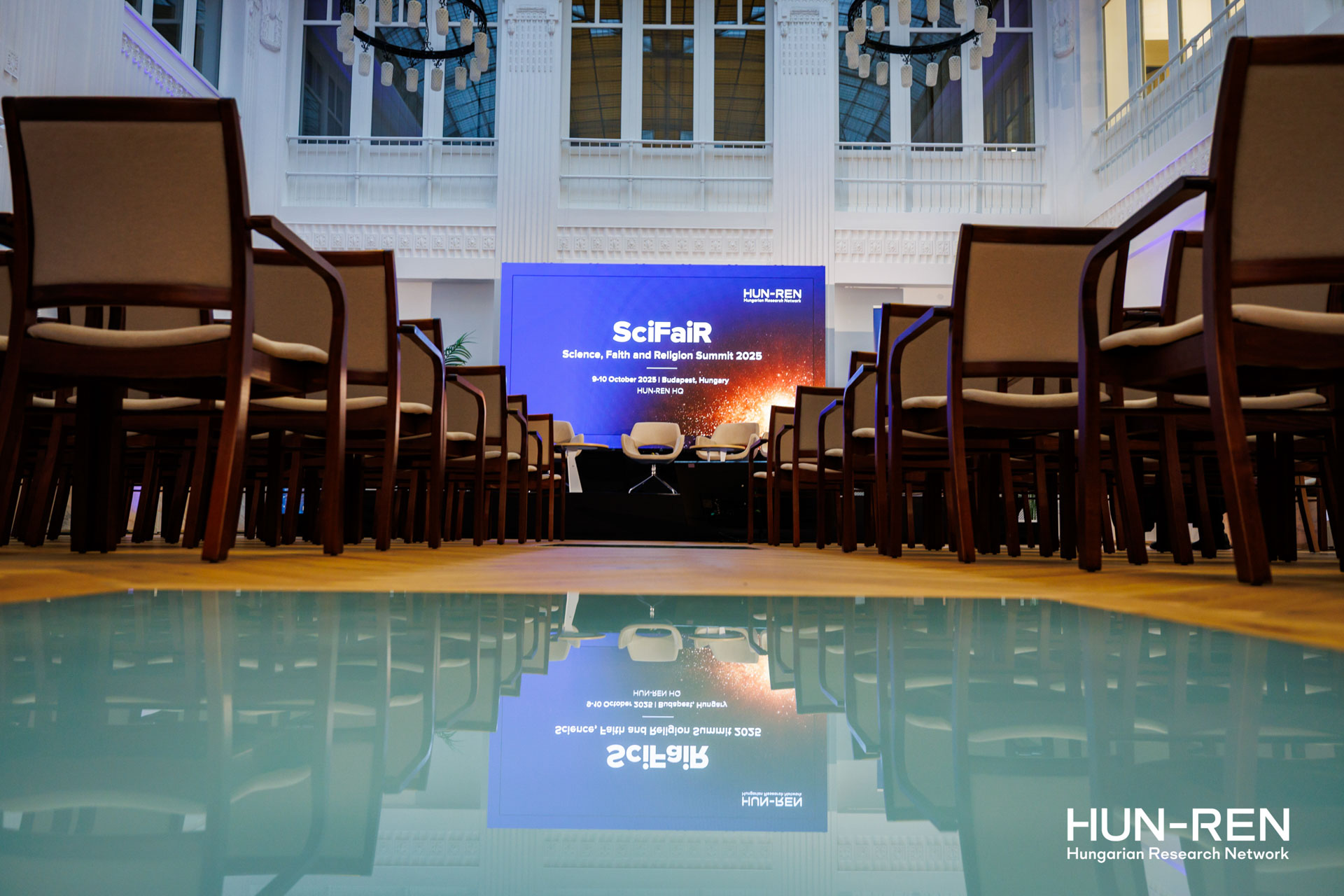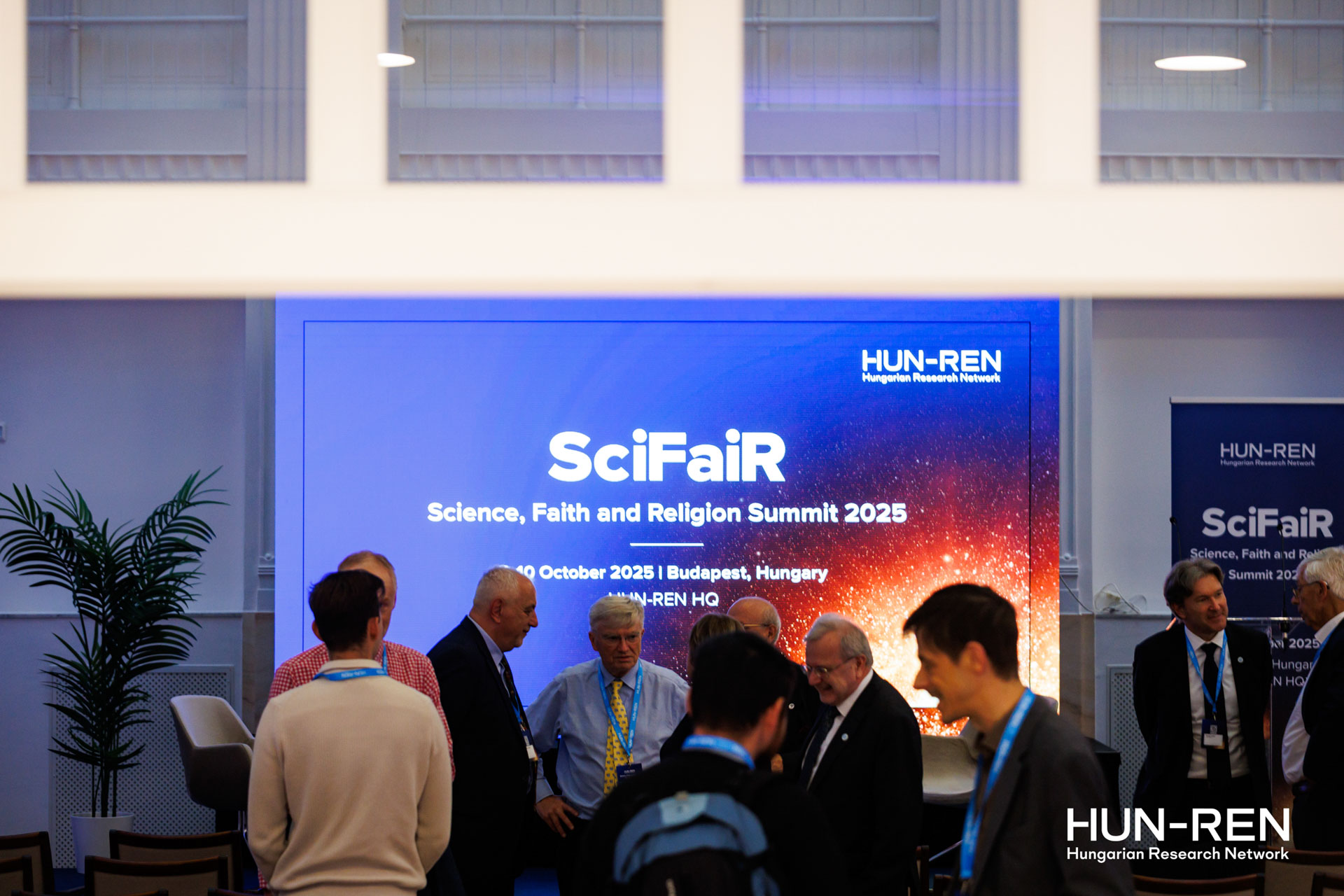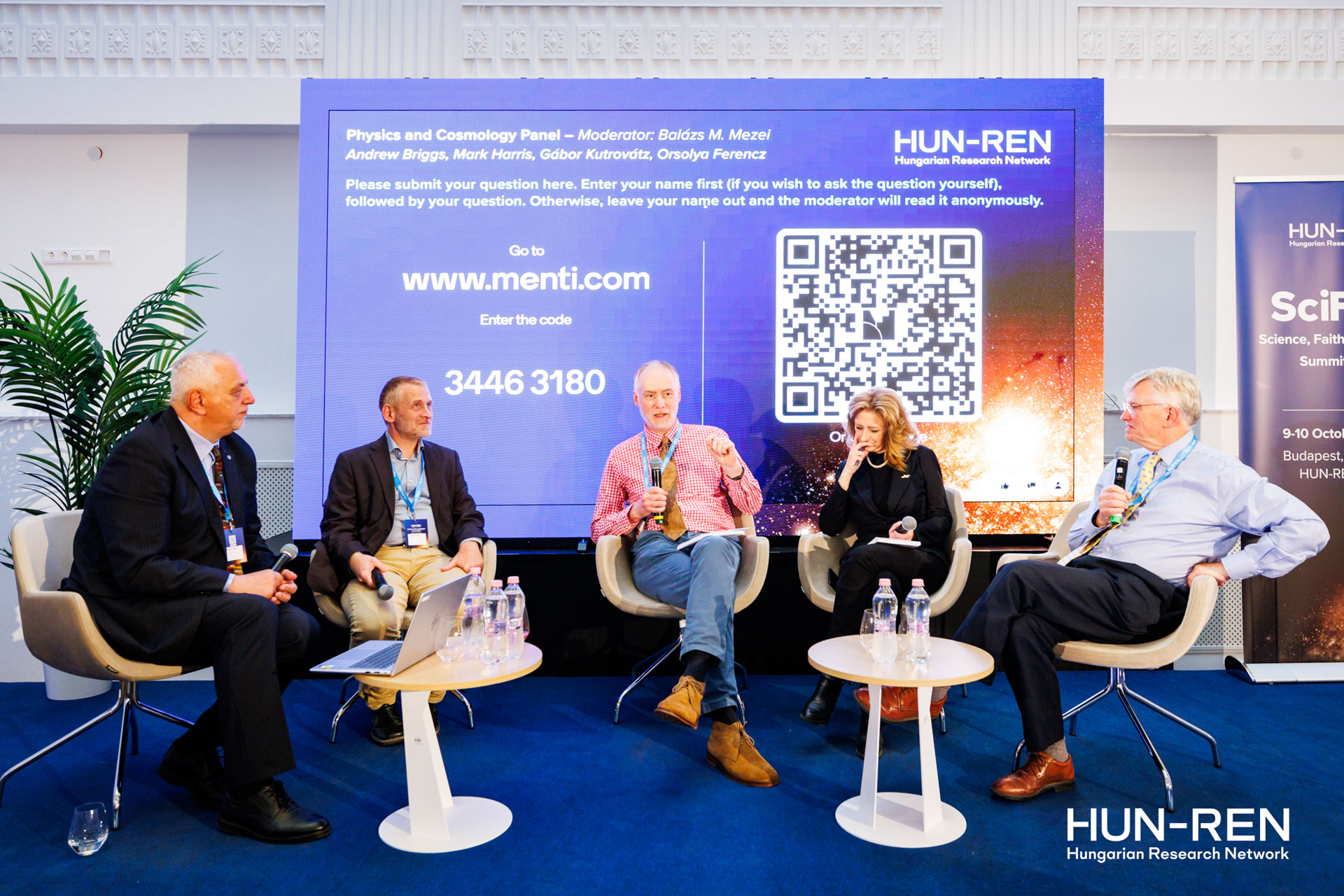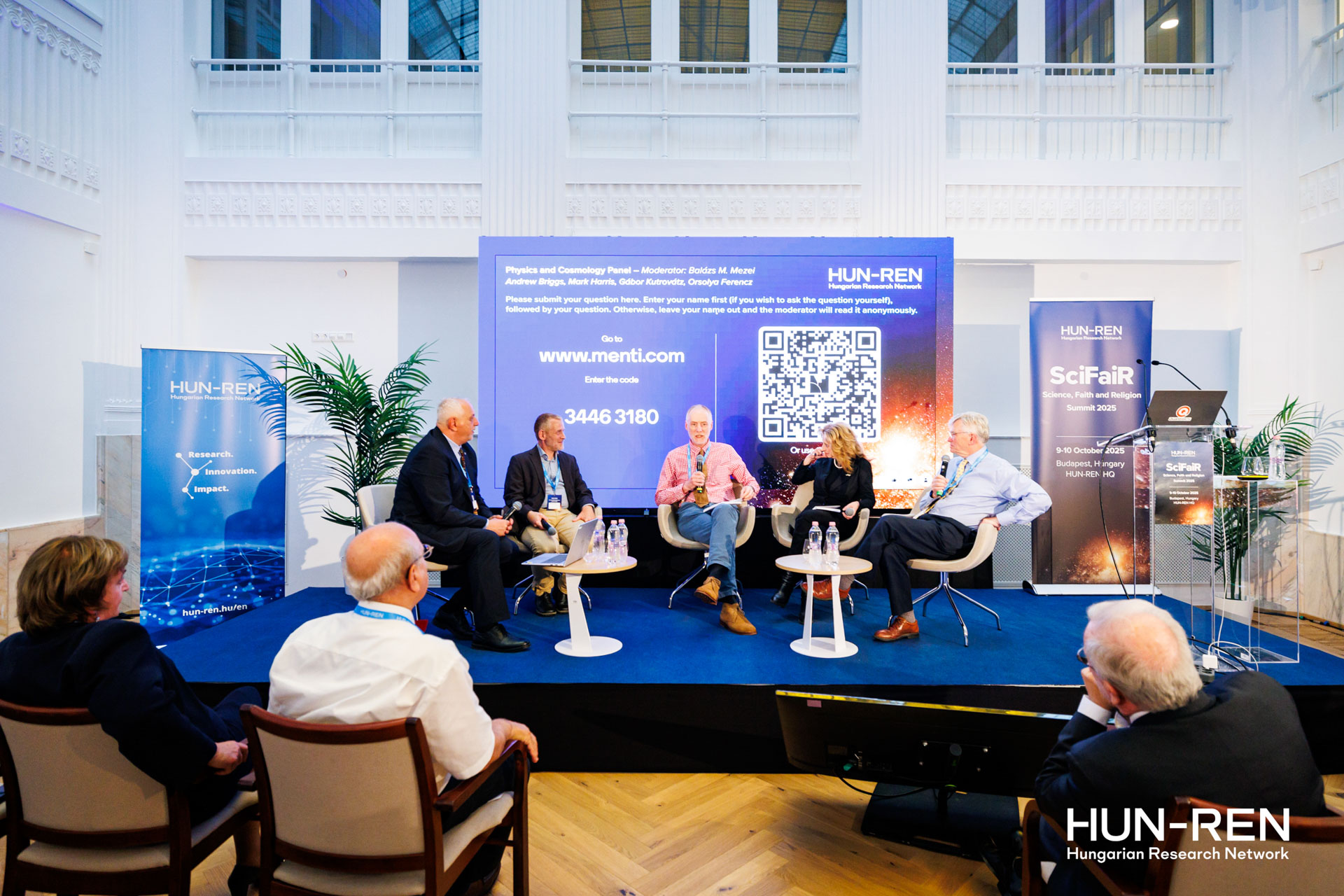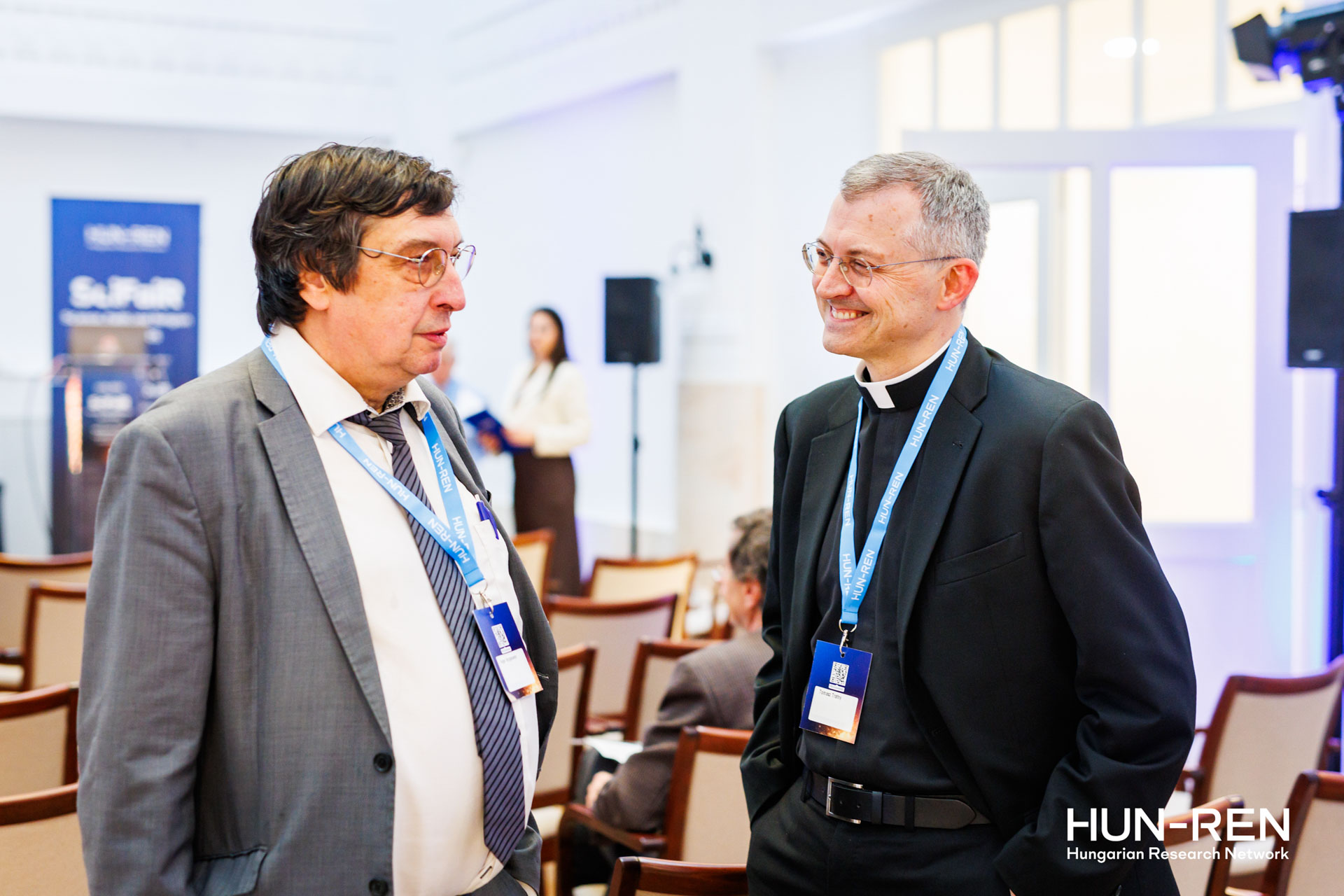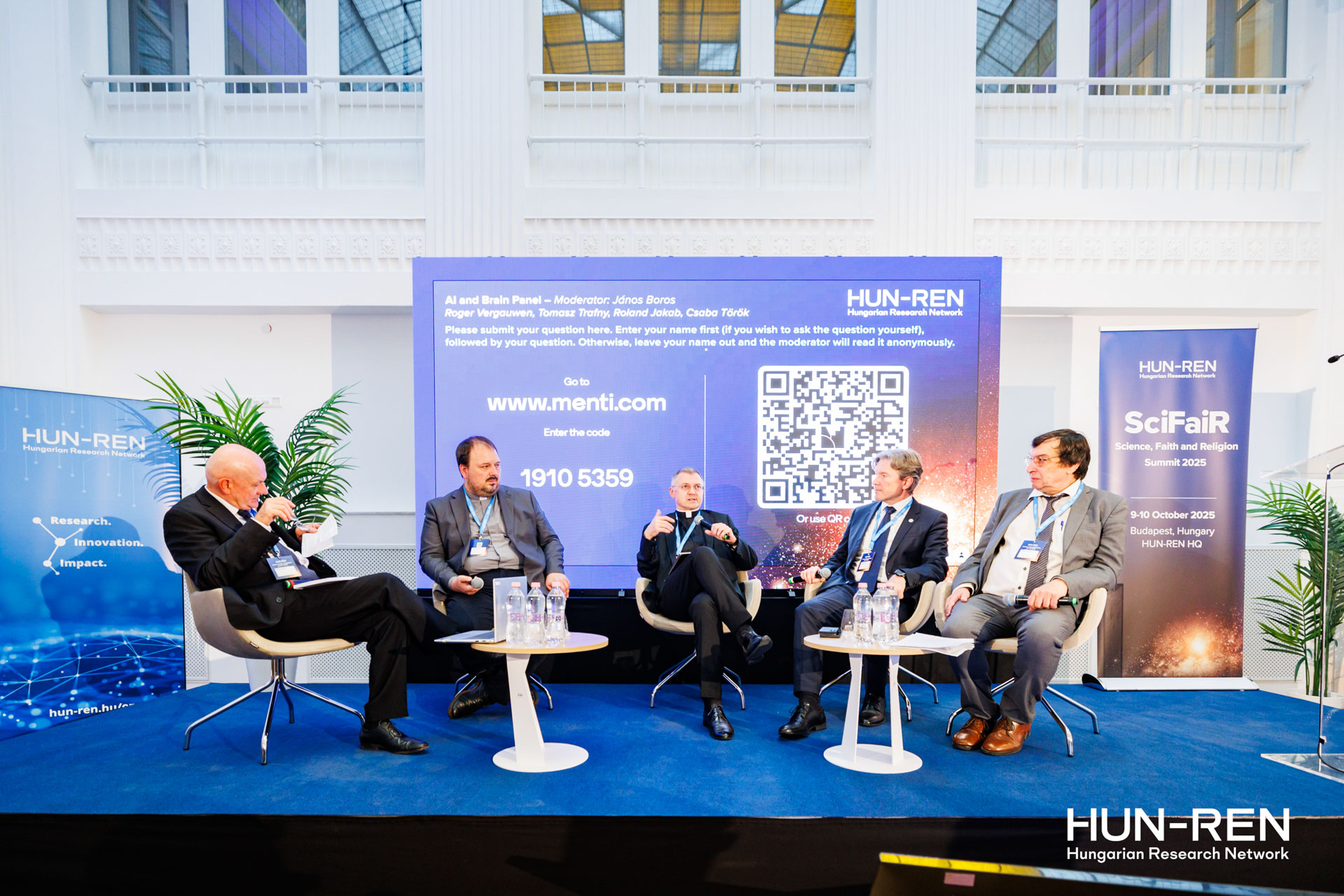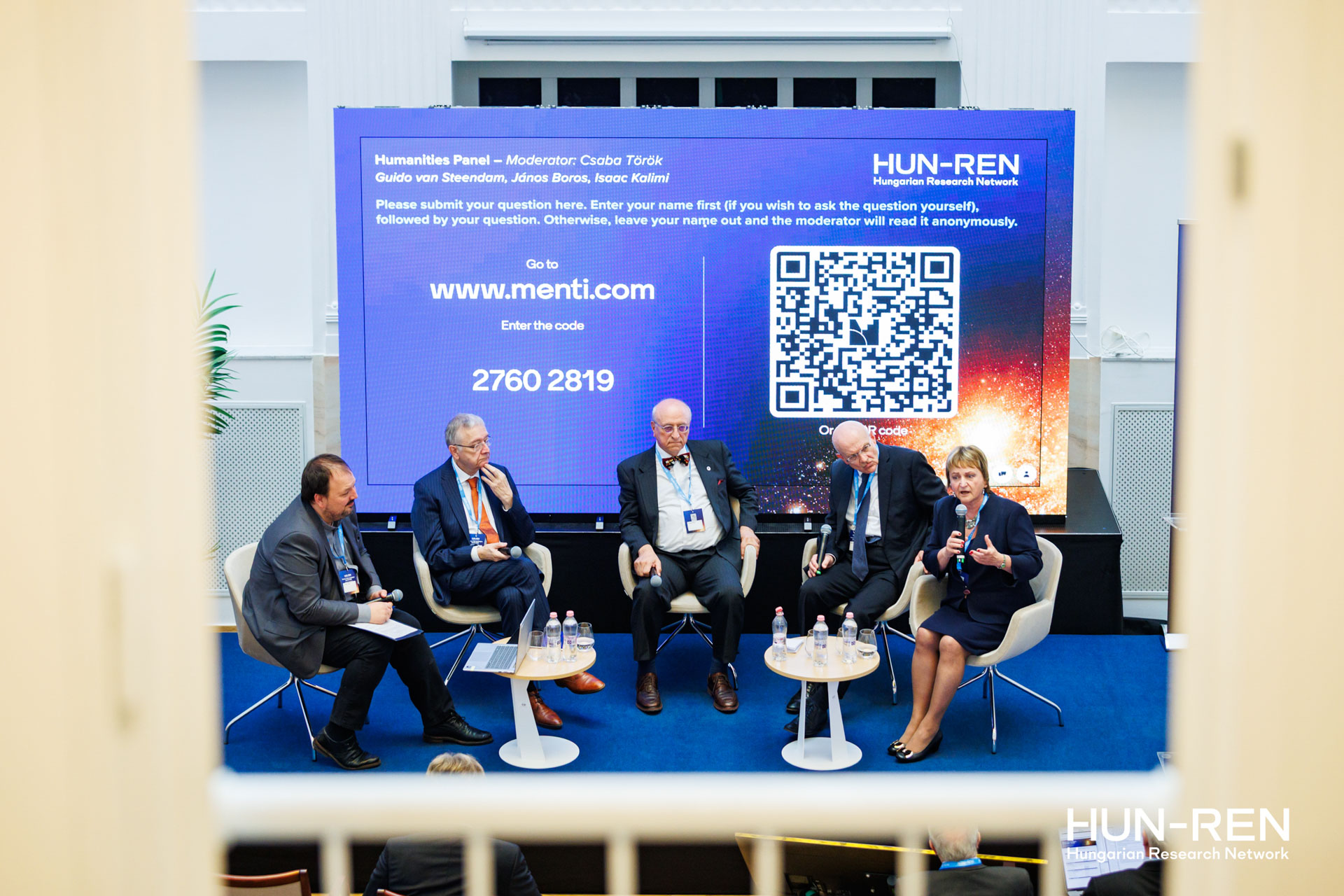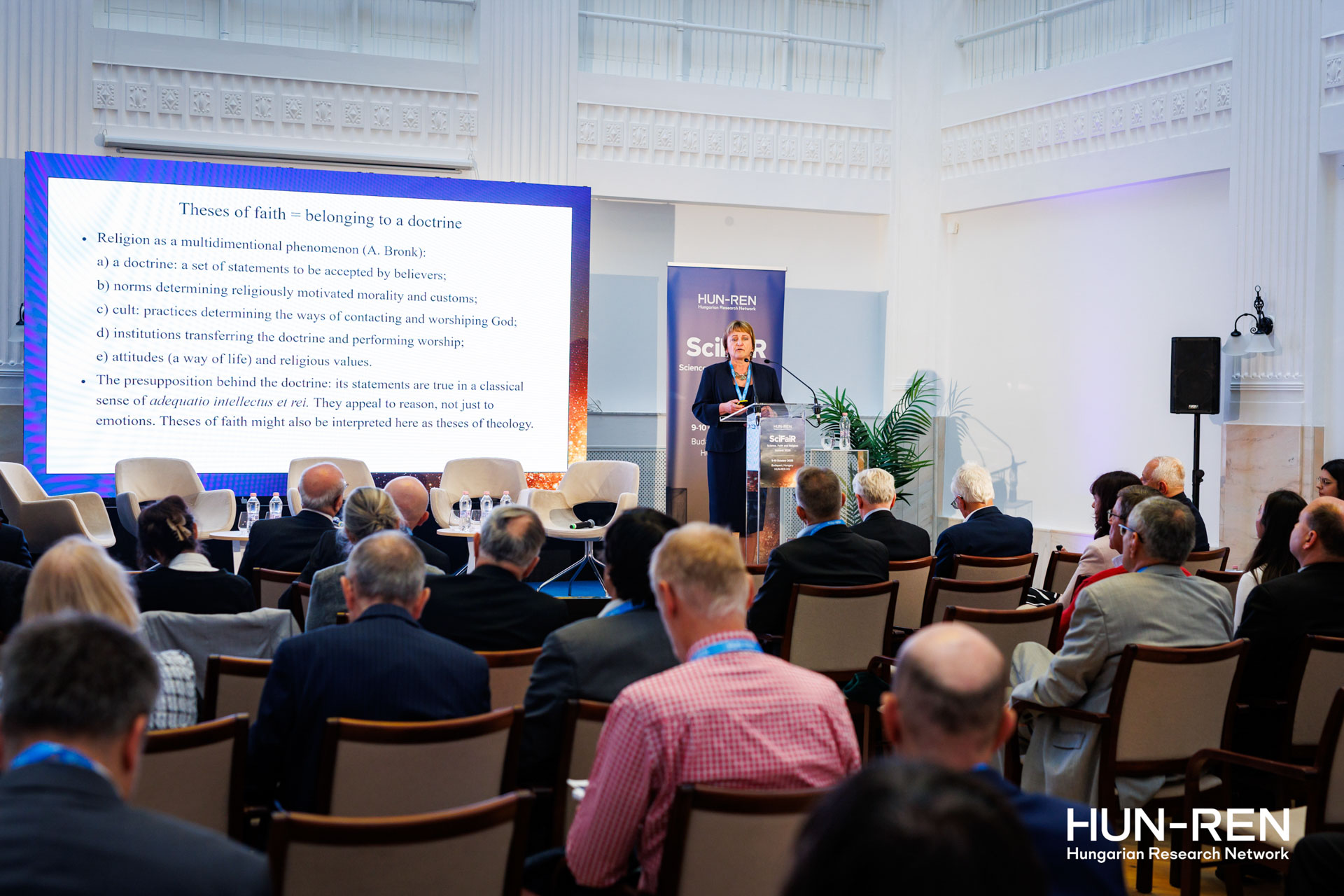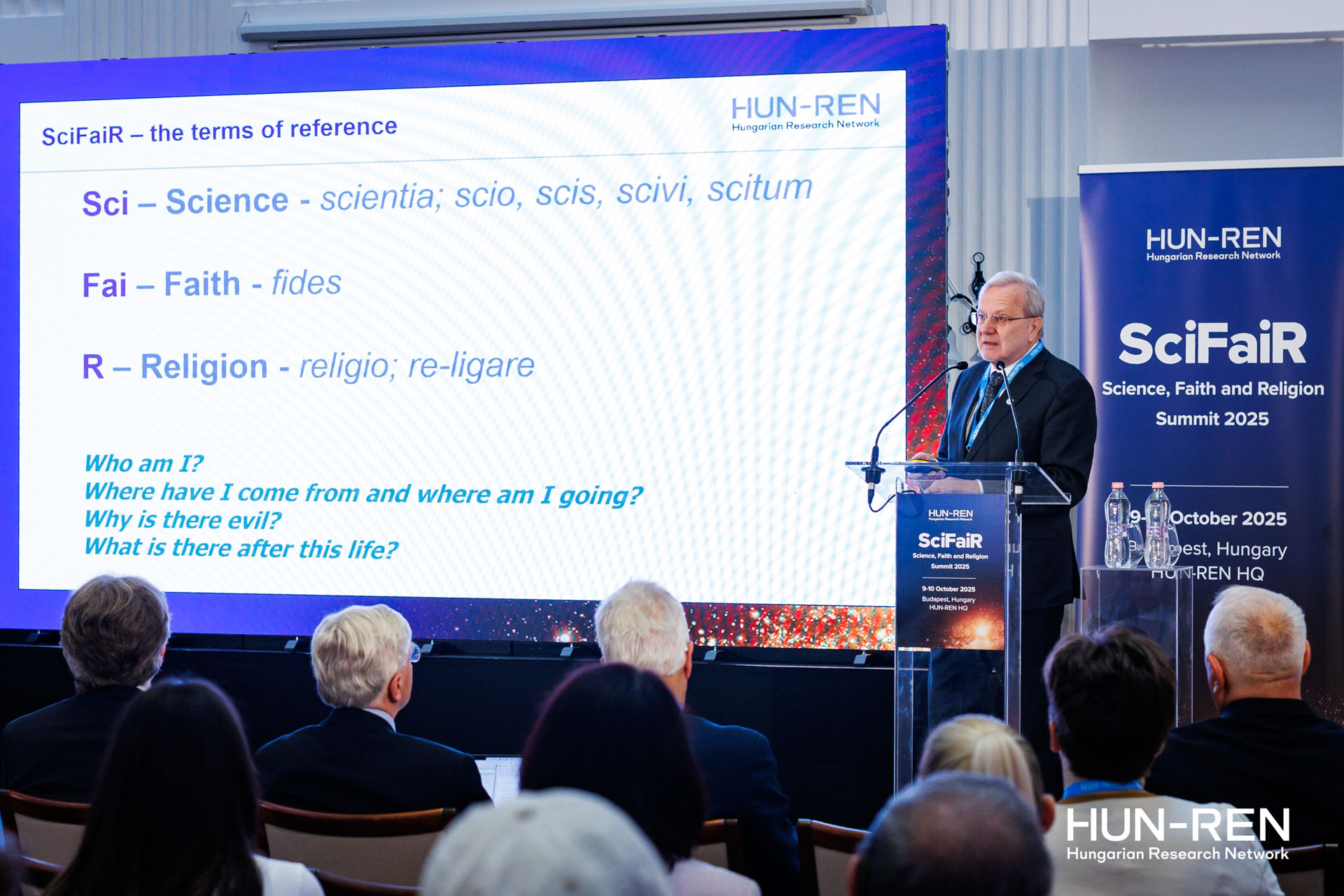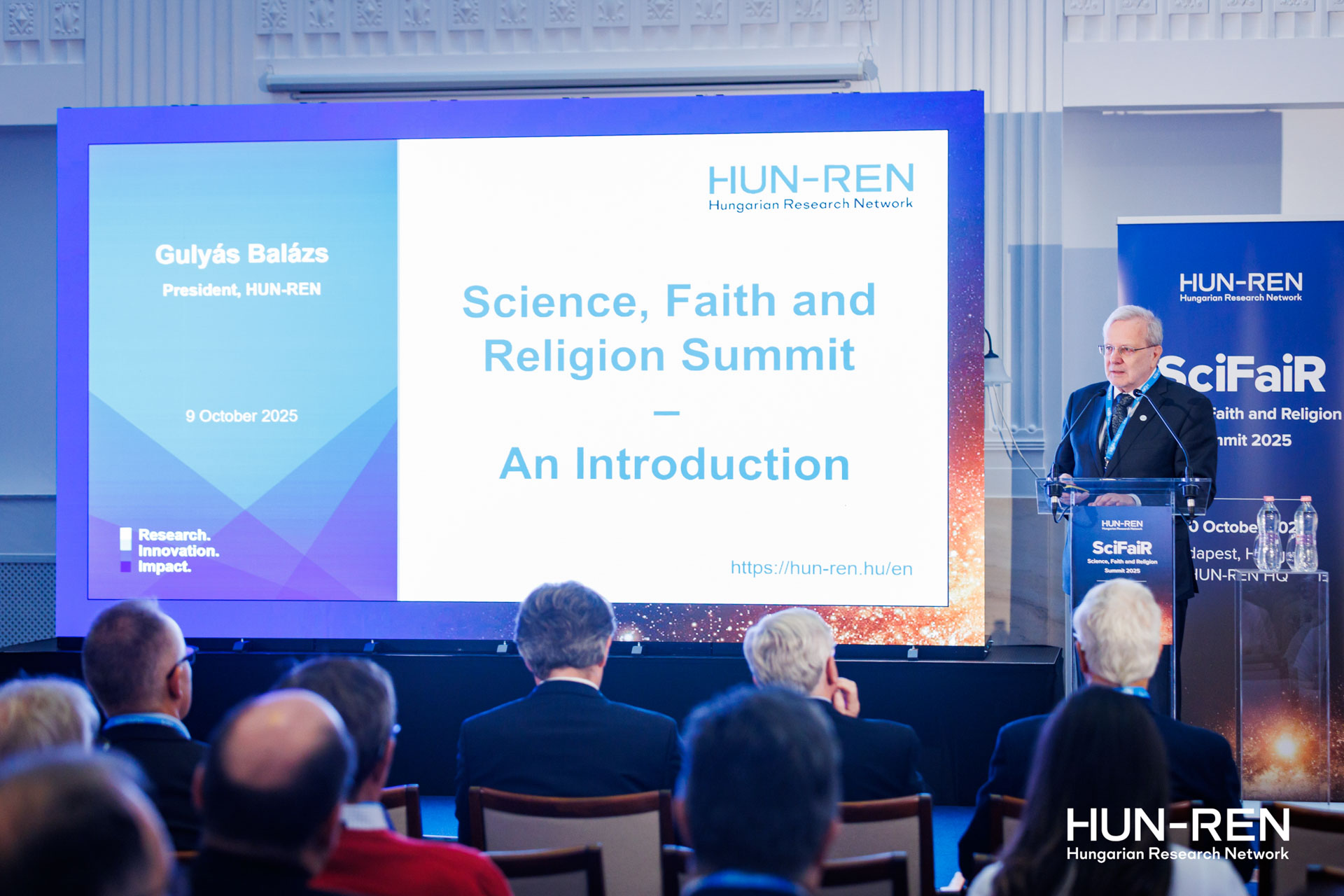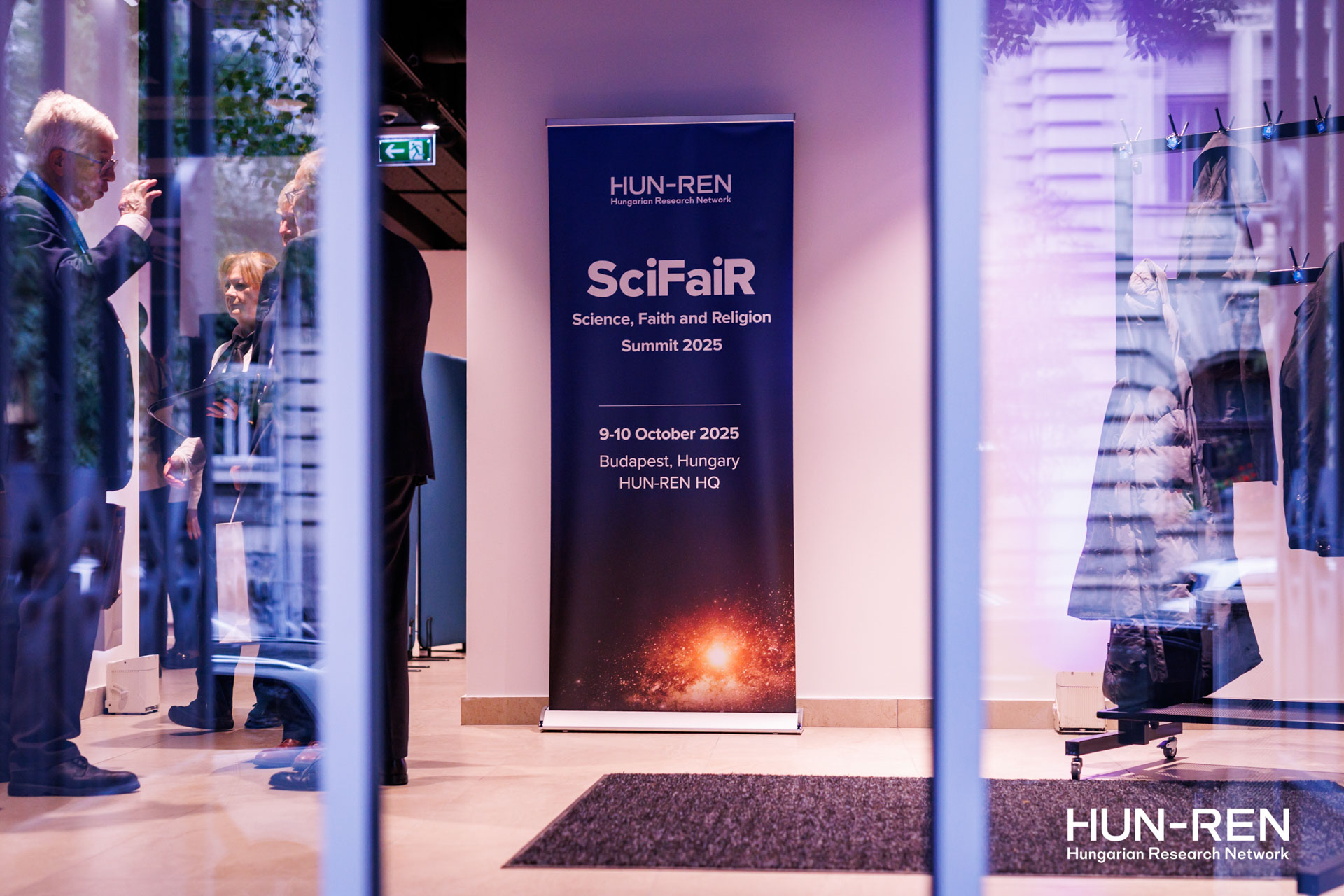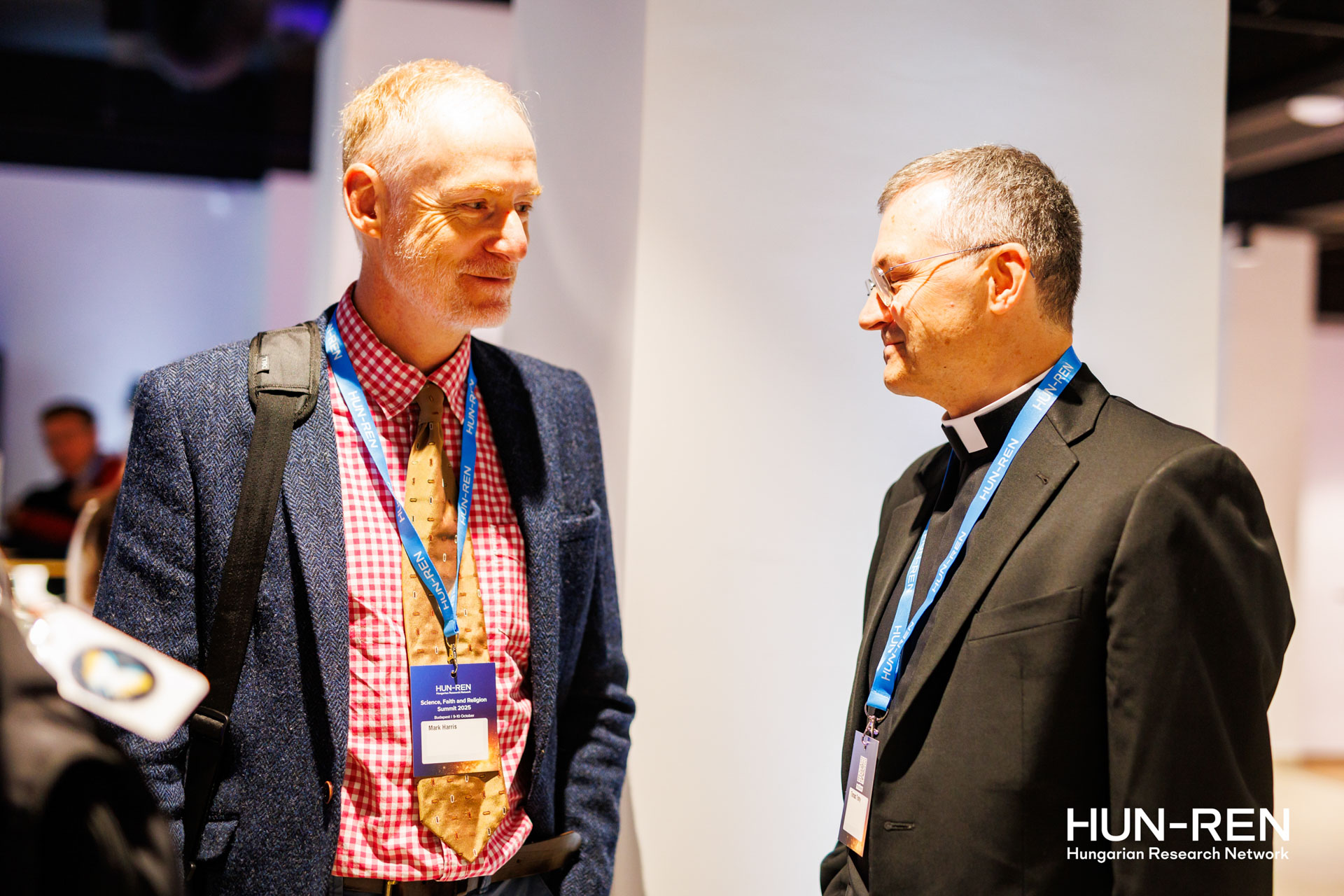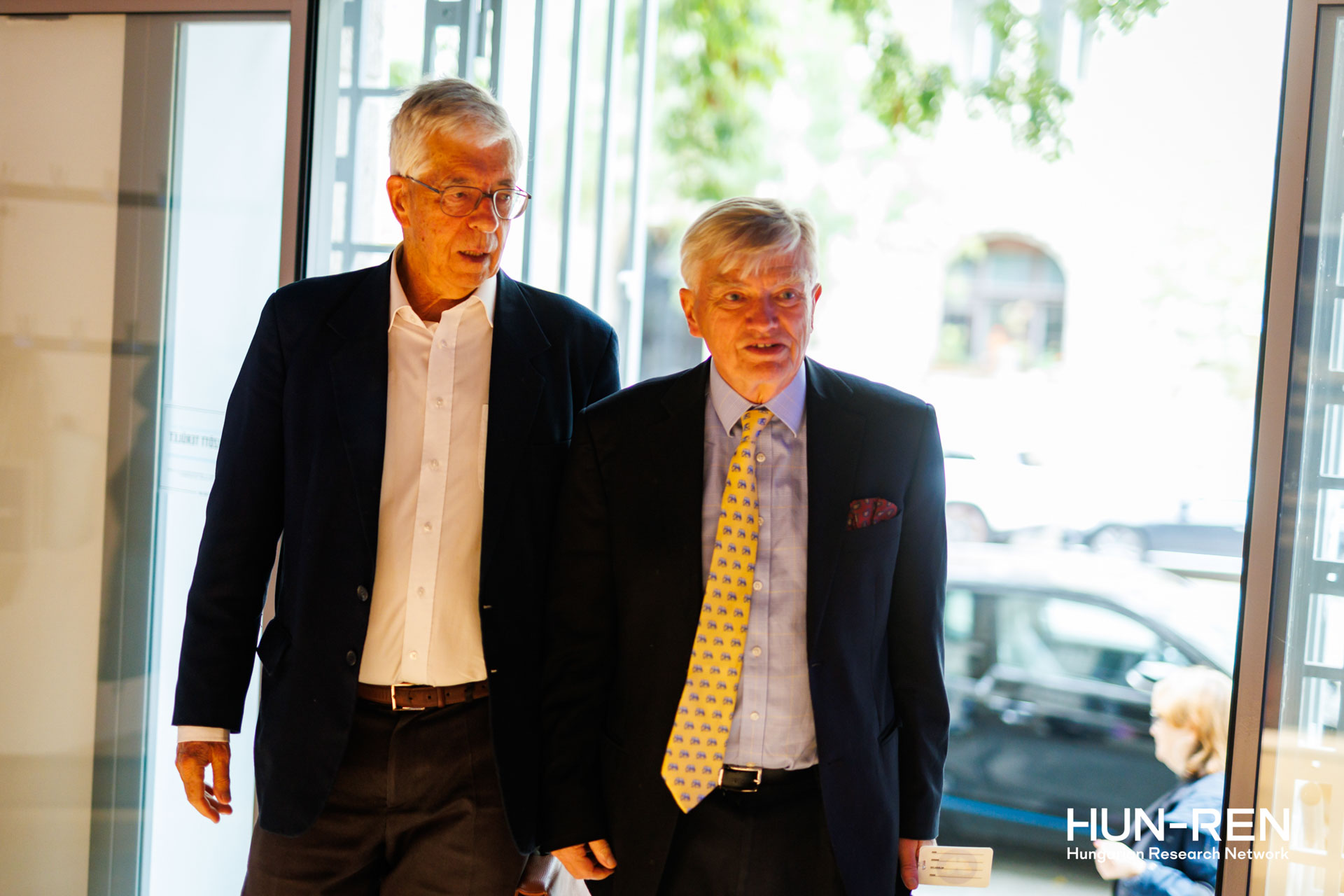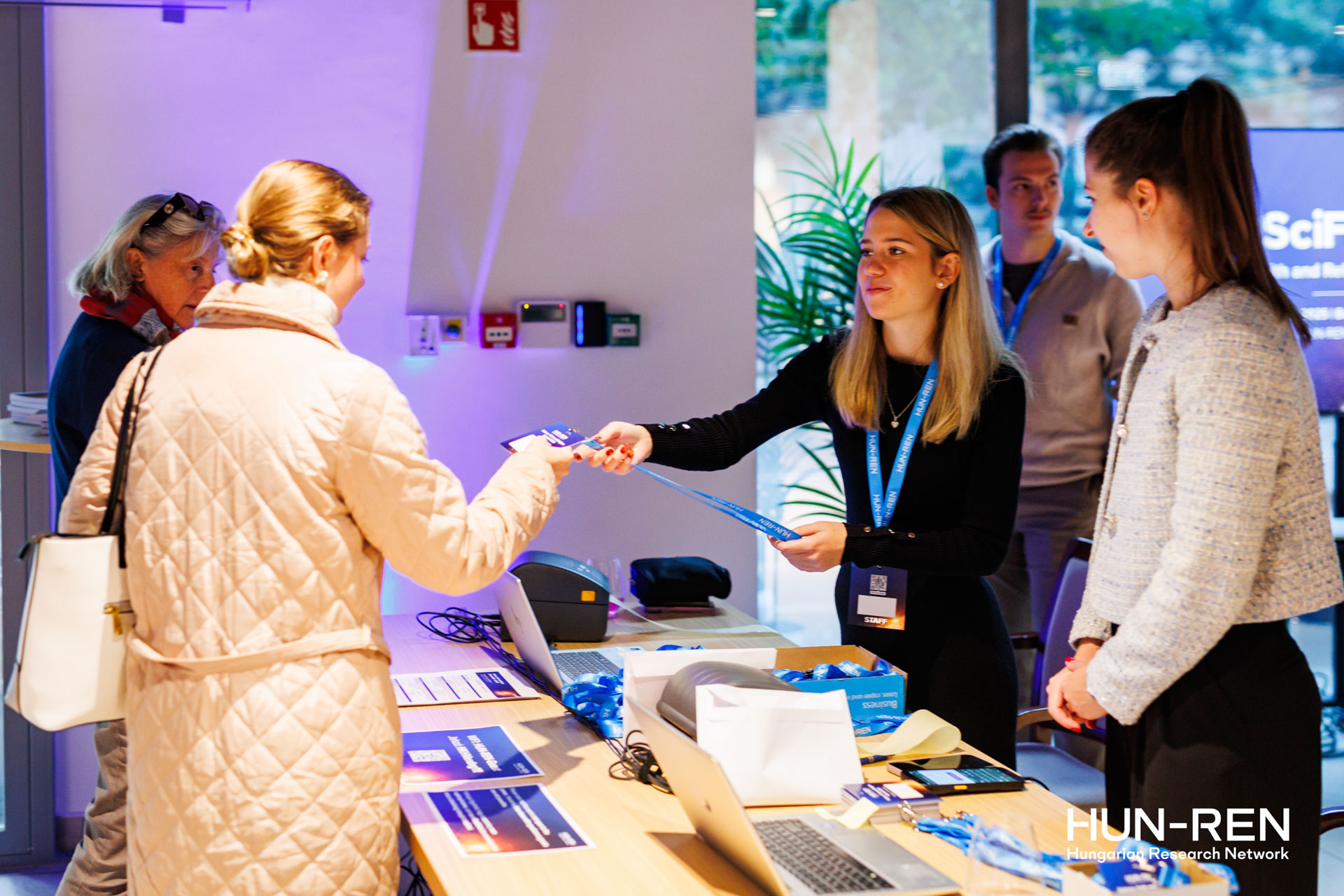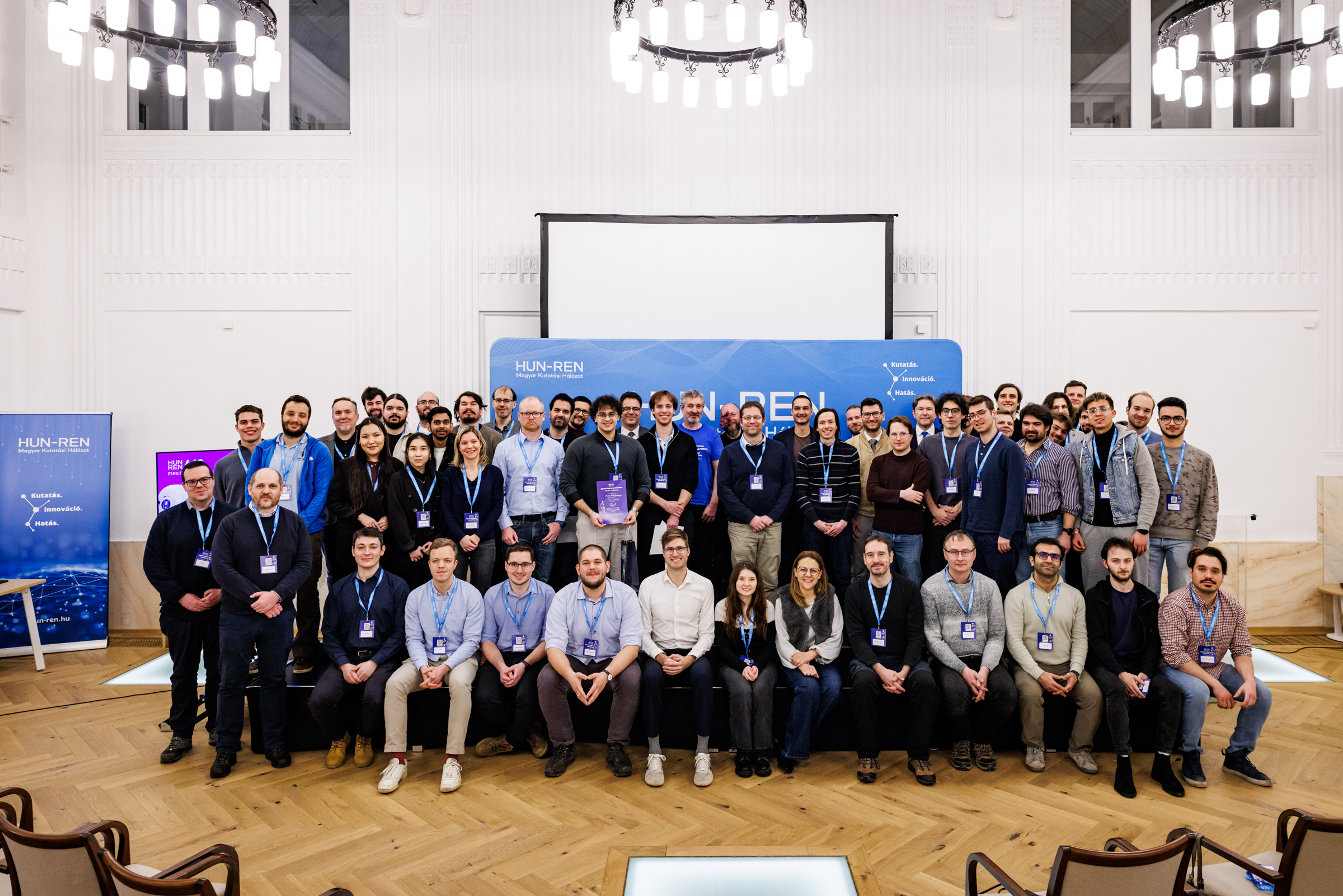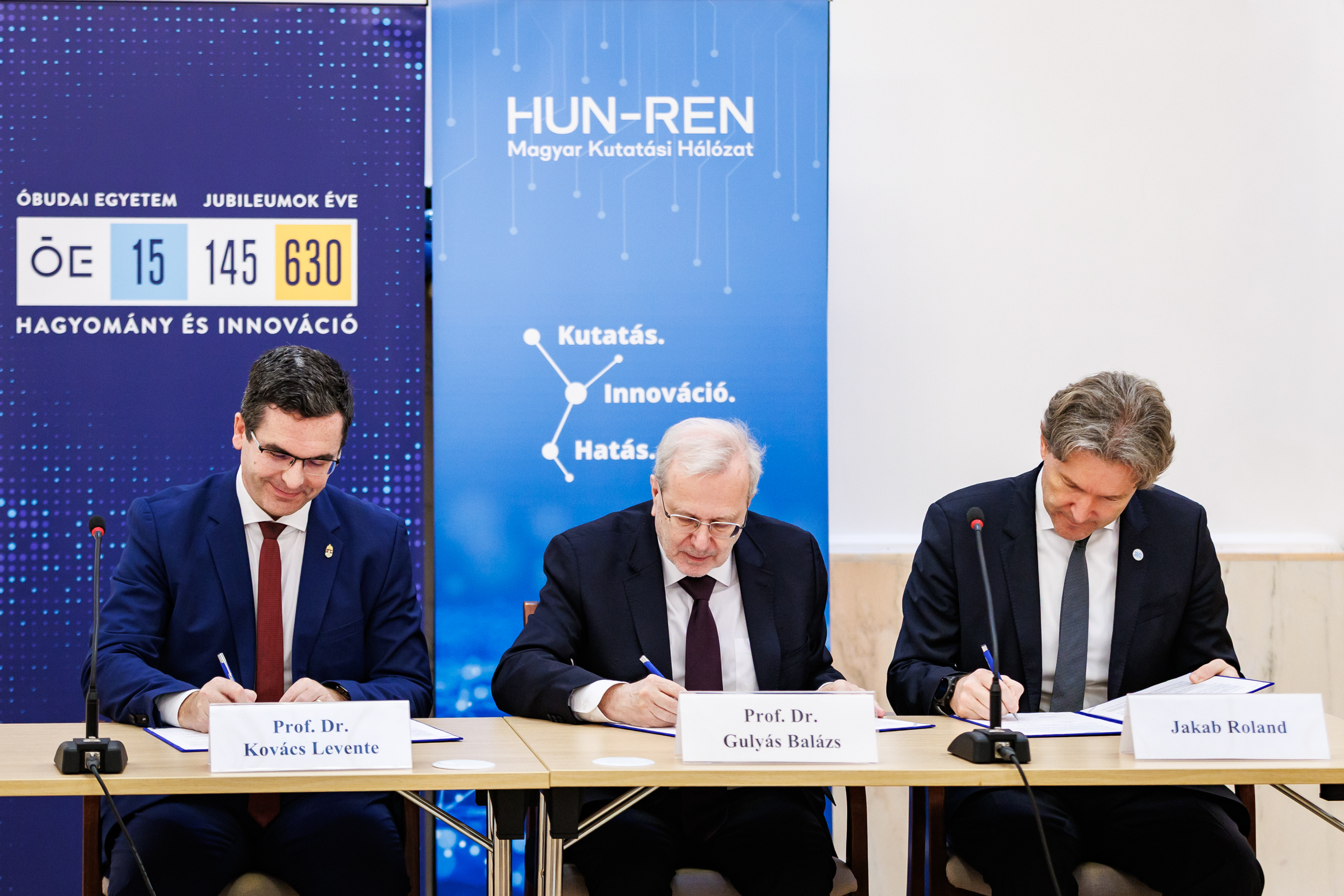Science and Faith Meet in Budapest — Day One at the SciFaiR Summit 2025
Organised by the HUN-REN Hungarian Research Network, the SciFaiR — Science, Faith and Religion Summit 2025 took place in Budapest on 9–10 October. The two-day event provided a forum for researchers from across disciplines to engage in shared reflection and dialogue at the intersection of science and faith.
‘I am convinced that all of us here have come with the aim of understanding the common ground between science and faith, and between research and a religious approach,’ said Balázs Gulyás, President of HUN-REN, in his opening remarks at the two-day SciFaiR Summit 2025.
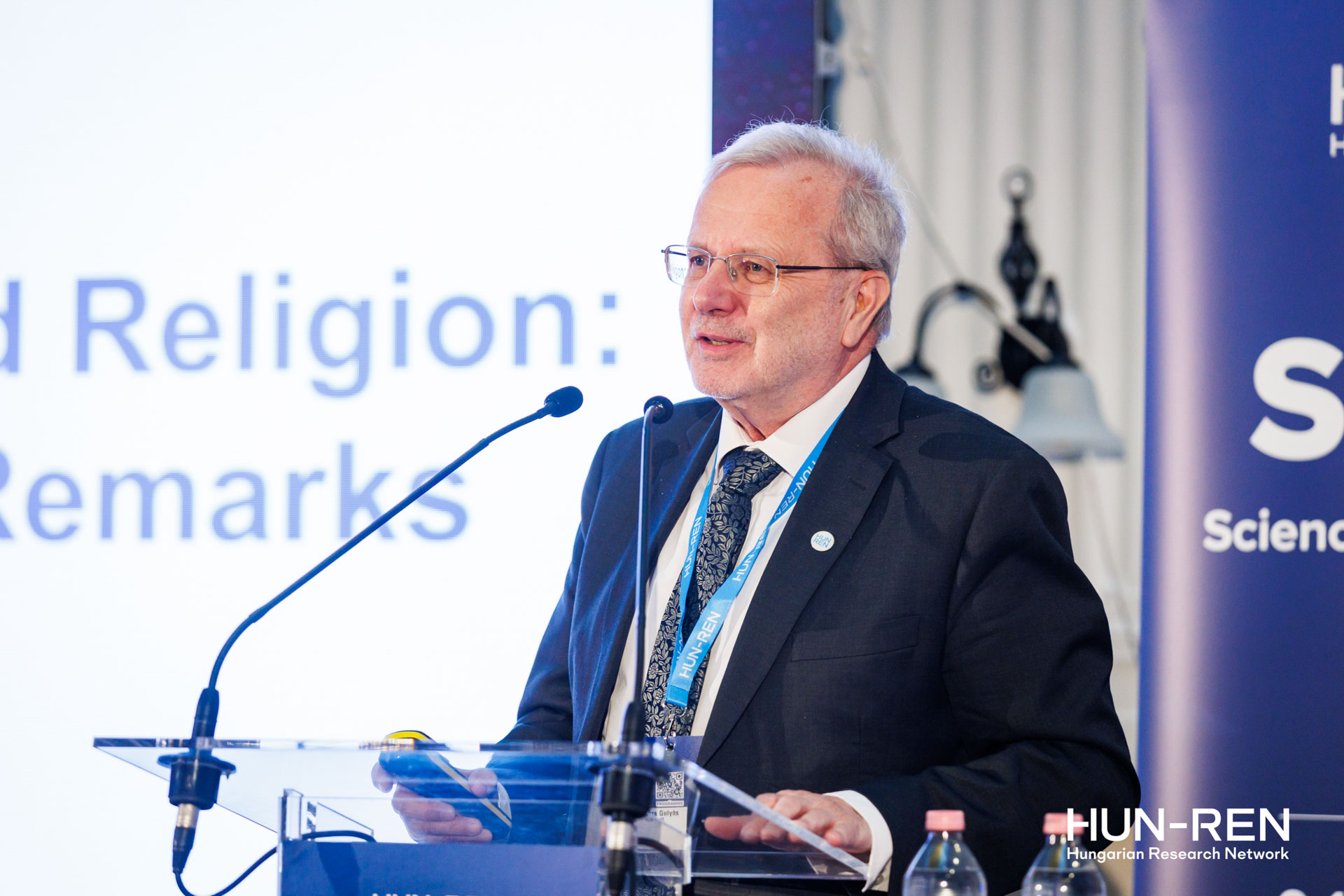
Fotó: DKP Visual
‘At HUN-REN we believe that science alone is a one-legged stool — reality is far broader, deeper and richer. That is why we see it as our duty to engage in dialogue with those who pursue truth by other paths,’ said Balázs Gulyás in his address. He added that the conference seeks to take stock of where philosophy, theology and the natural sciences stand today in addressing these questions, to identify the key issues and challenges, and to consider how we might respond in the future. ‘We would like Budapest to be the long-term home of this dialogue,’ the President of HUN-REN added.
According to Balázs Gulyás, scientific and theological thought have gone hand in hand throughout history. ‘This shared development has shaped the human spirit, and I am confident it will continue to do so in the future,’ emphasised the President of HUN-REN.
Revelation and science: a dialogue on the meaning of the world
Do we have a concept of revelation? According to Balázs M. Mezei, Research Professor at Corvinus University of Budapest, the answer is yes, since we all understand what it means — even if we cannot define it precisely. Where does this concept come from, and what is its nature? ‘If it exists, then it is already within us, embedded in human thought,’ argued Professor Mezei, who explored divine revelation and its relationship with science.
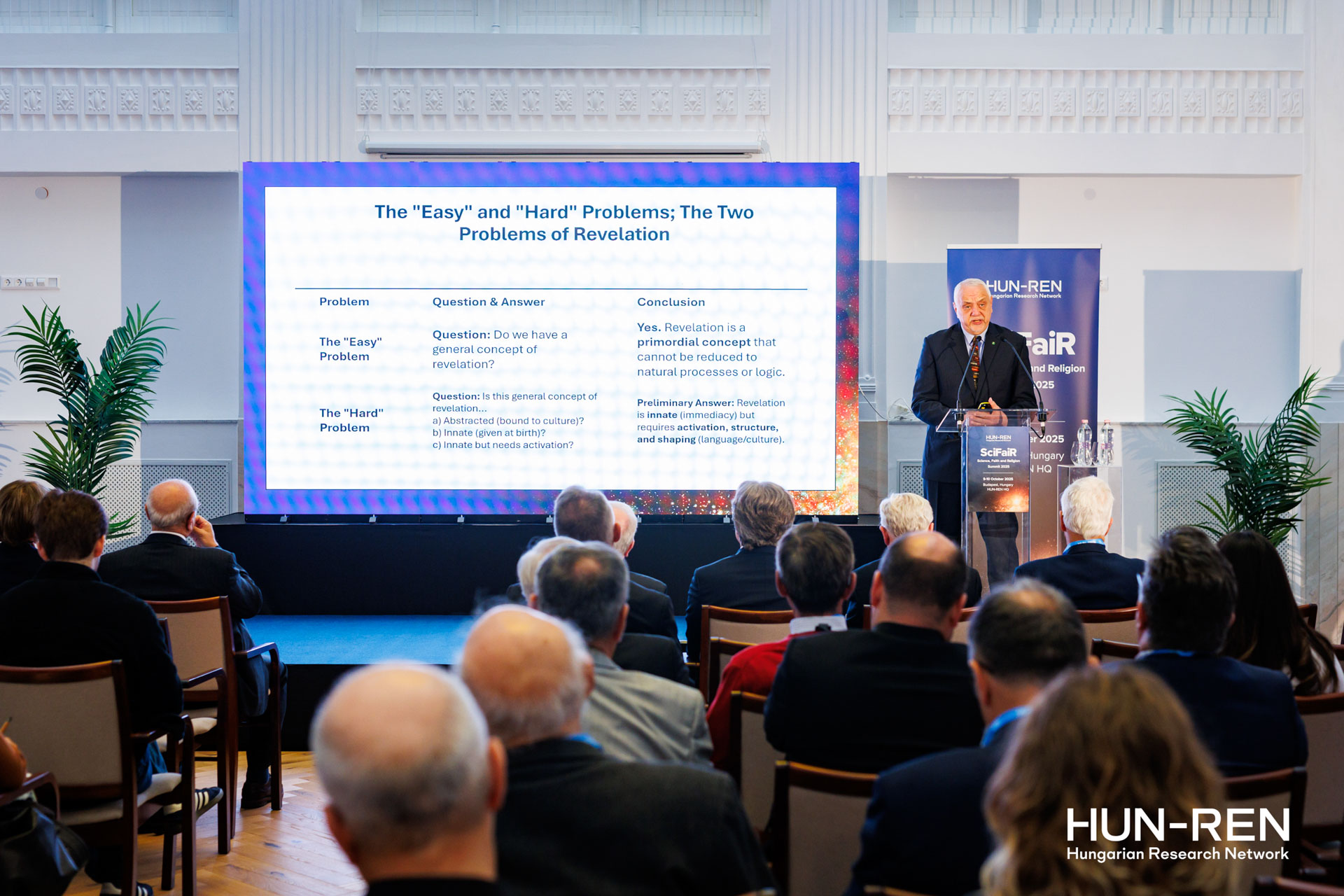
Fotó: DKP Visual
Alister McGrath, Research Professor at the University of Oxford, outlined two approaches to understanding life in his lecture. He examined how we might cultivate a rich, deep and fulfilling outlook on life — one that also engages with questions about how the world works and what it means. ‘We need an “all-encompassing theory” that speaks to what truly matters; positive, constructive dialogue between science and religion can play a key role in shaping such a comprehensive worldview,’ said Professor McGrath.
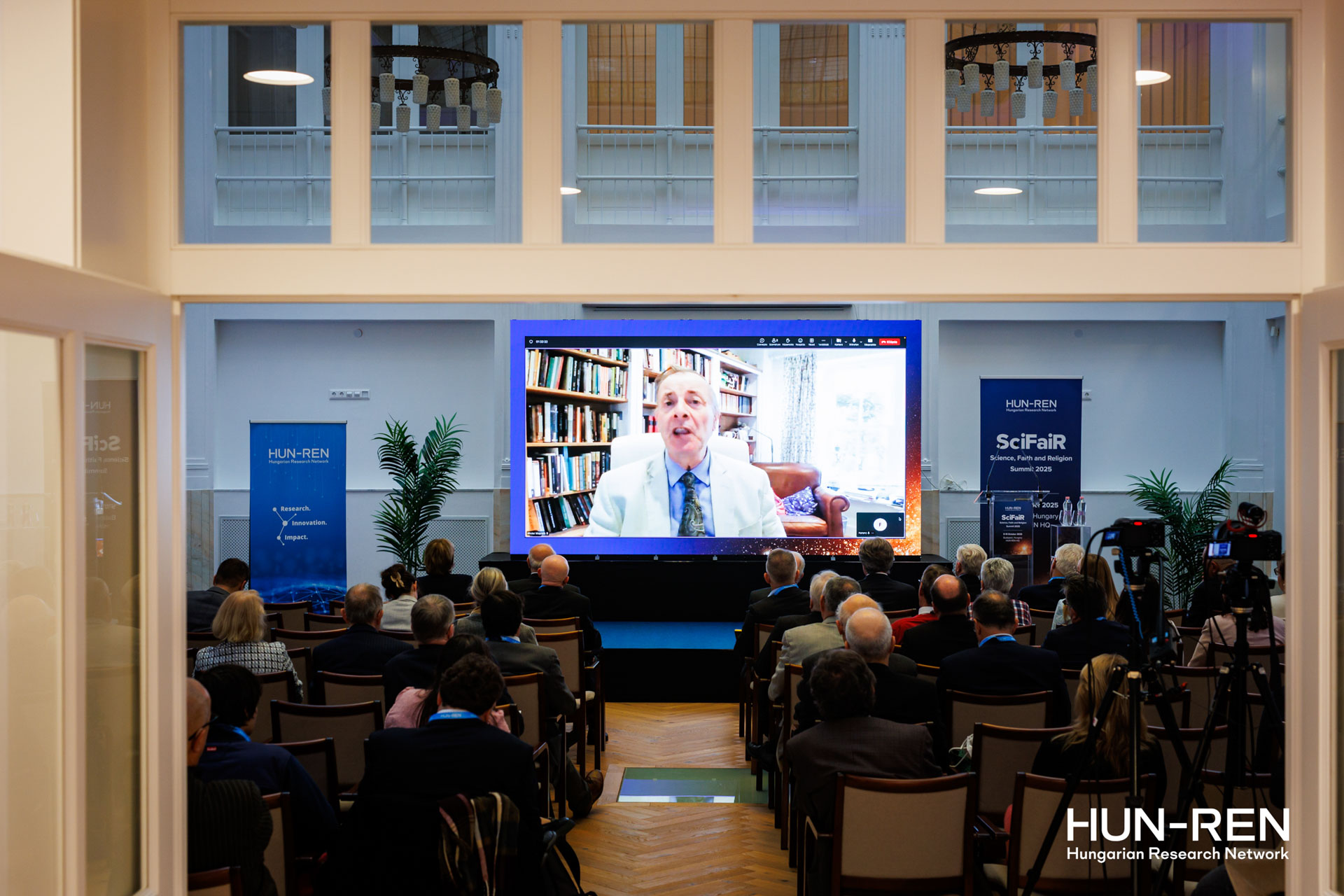
Fotó: DKP Visual
Professor McGrath concluded his lecture with a quotation from Pope John Paul II: ‘Science can purify religion from error and superstition; religion can purify science from idolatry and false absolutes. Each can draw the other into a wider world, a world in which both can flourish.’ ‘This, perhaps, is the best summary of how we might think about the relationship between science and faith today,’ he added.
Reflecting or shaping? The role of science and faith in the world
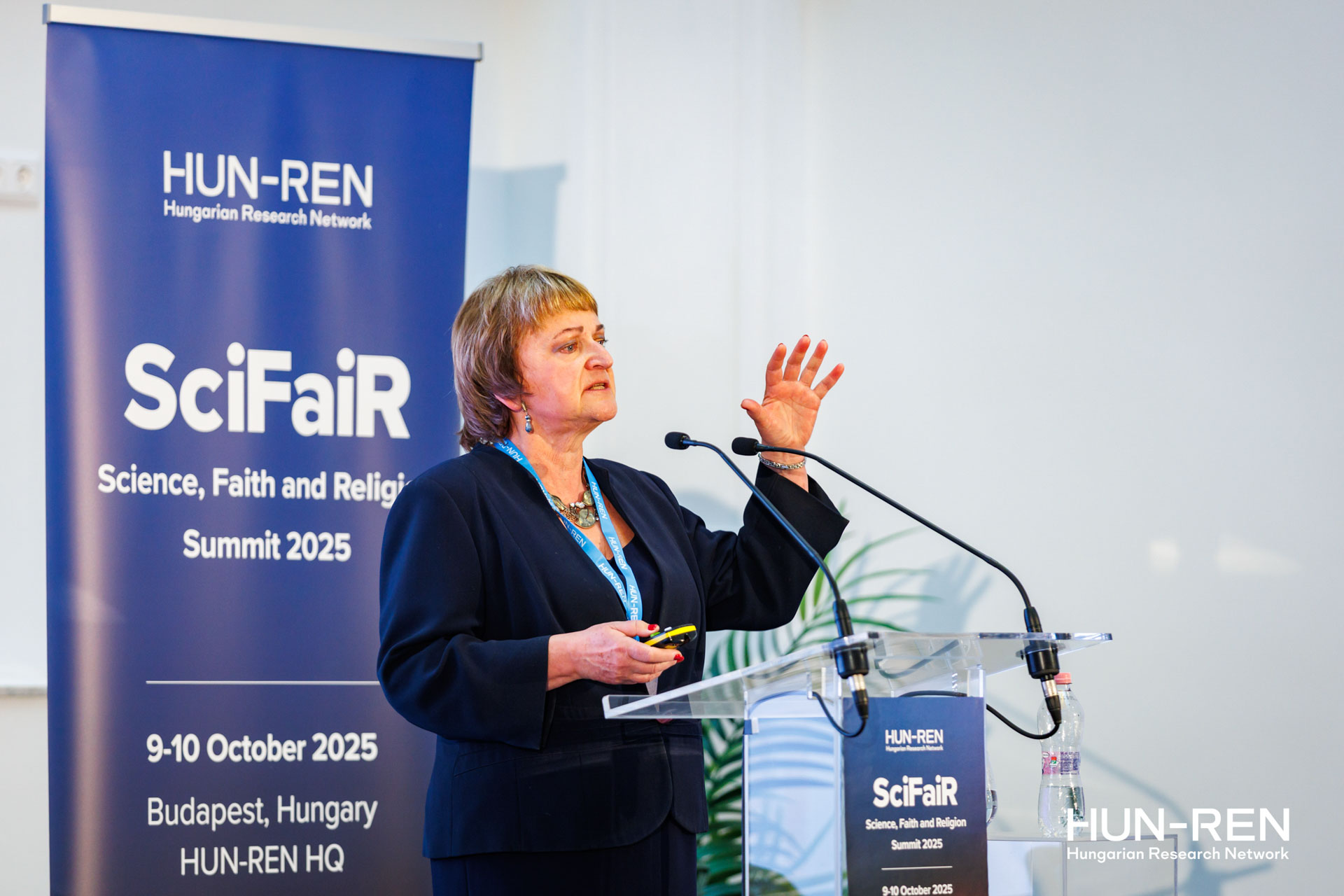
Fotó: DKP Visual
Following her lecture, a panel discussion between researchers and religious thinkers explored what reality is and how science and faith relate to it. Science seeks to understand the structure of the world, yet in doing so we inevitably rely on our own patterns of thought. In other words, as we study reality, we ourselves are part of it. For this reason, science does not merely ‘mirror’ the world; it also shapes it.
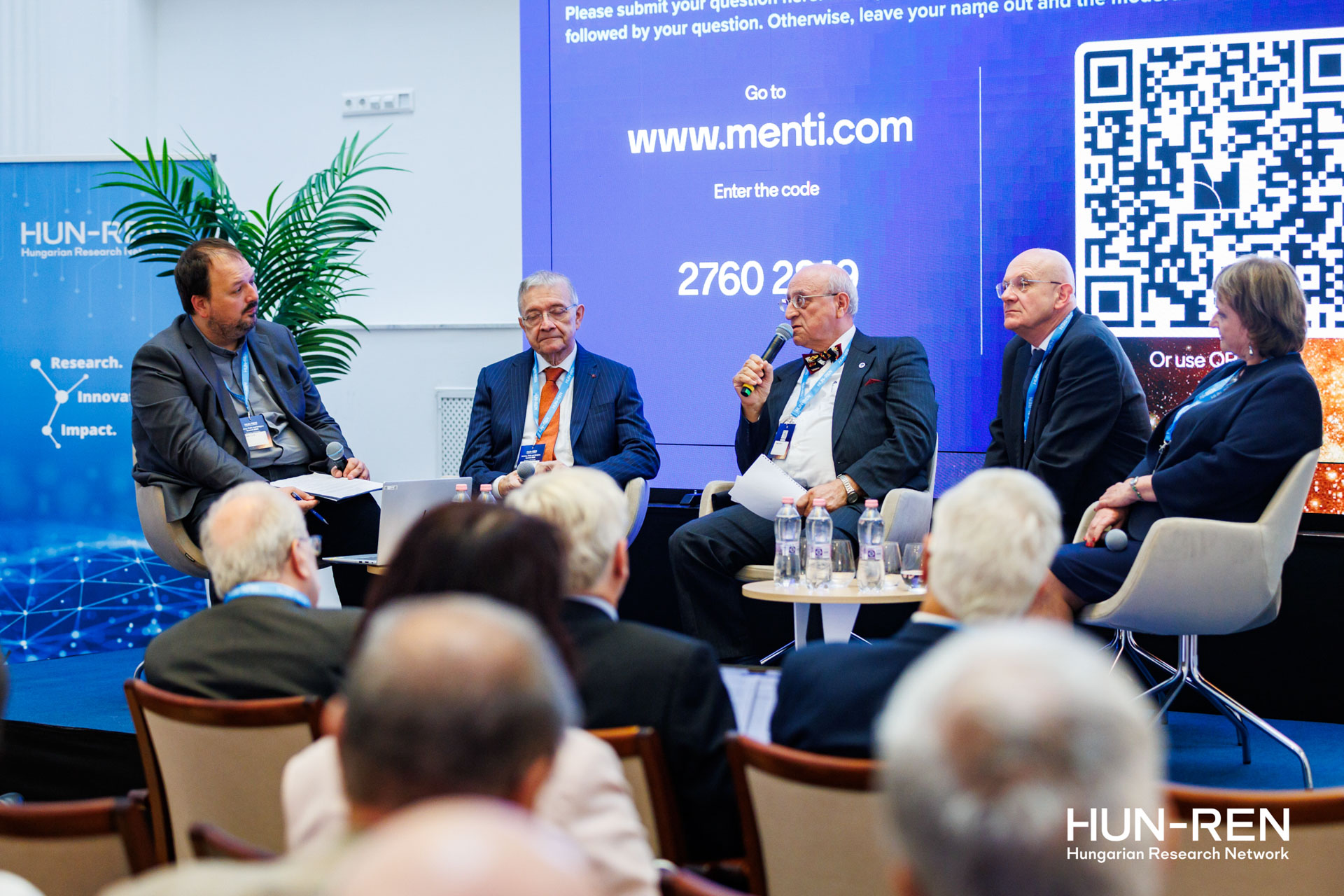
Fotó: DKP Visual
Finally, it was noted that science, too, involves an element of faith — for example, when a researcher believes that a new theory may offer a better explanation. Faith and reason are therefore not in opposition; together they enable us to understand and shape the world.
The mystery of consciousness — philosophical and ethical perspectives, and the AI angle
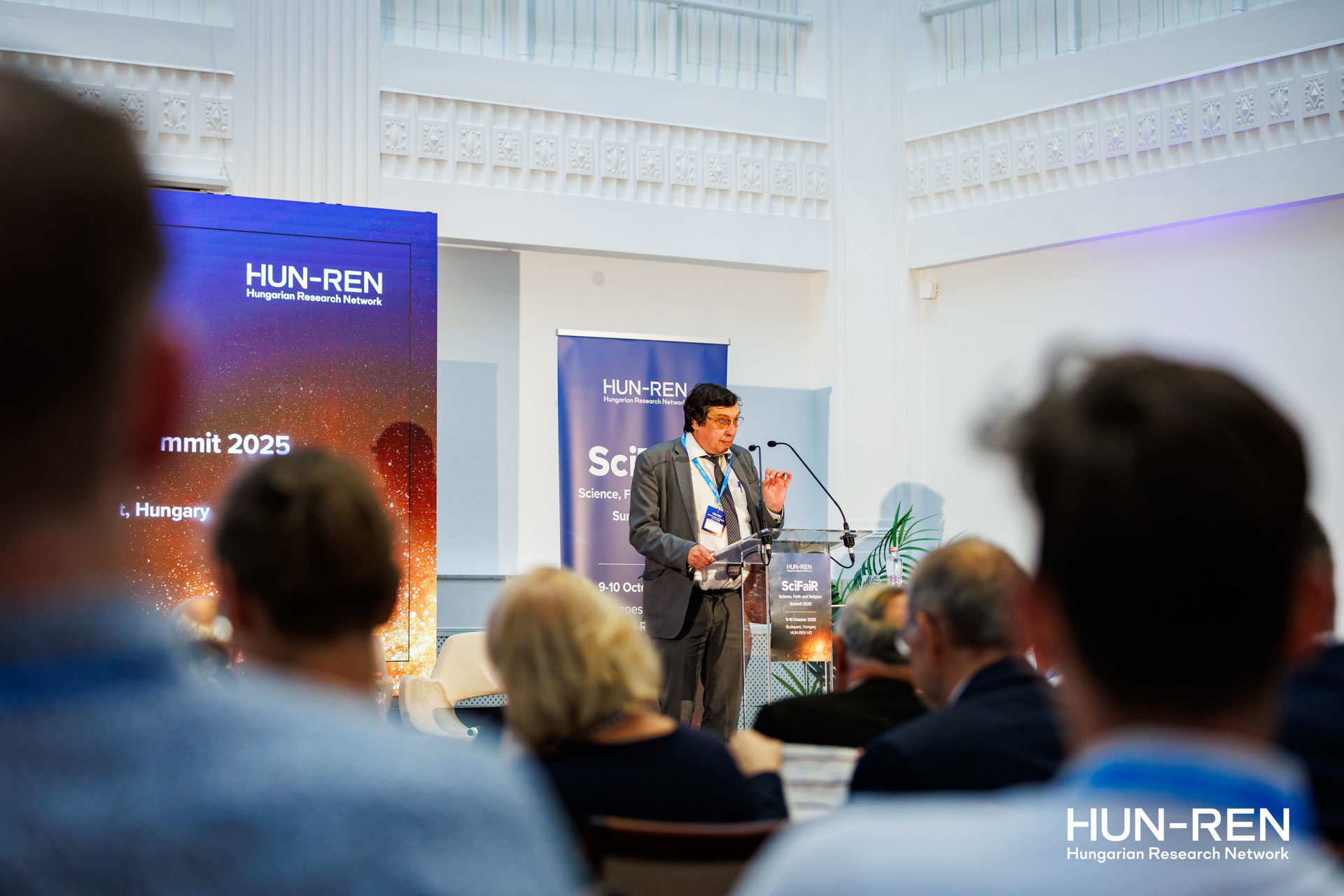
Fotó: DKP Visual
Following the lecture, an AI-focused panel discussion featured Monsignor Tomasz Trafny of the General Secretariat of the Synod; Roland Jakab, CEO of HUN-REN; and theologian Csaba Török, Parish Priest of the Primatial Basilica of the Assumption of the Blessed Virgin Mary and St Adalbert in Esztergom. The panellists explored questions of consciousness and artificial consciousness, debating whether consciousness is merely a product of brain function or something more that can exert top-down influence on the body. Several speakers offered examples of consciously modulating bodily processes, such as breathing and heart rate.
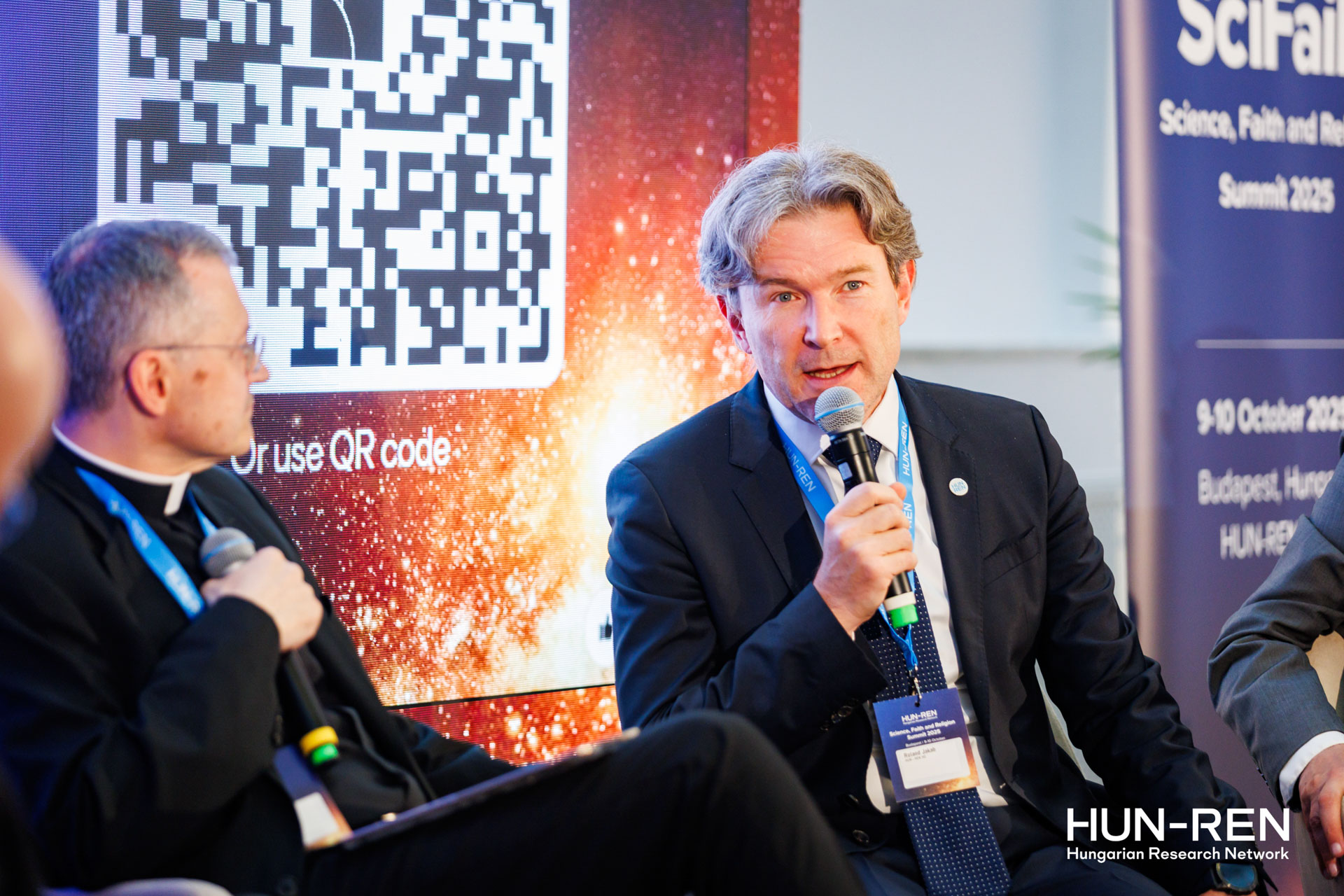
Fotó: DKP Visual
Another important question arose during the panel discussion: if we come to believe that a machine is conscious, should we treat it as a person? Would it have rights? Could it be baptised or buried? Ultimately, the panellists concluded that consciousness is not merely a technological issue but also an ethical and existential one.
Some argued that it is a theological question, since human rights are thought to stem from the soul, which machines cannot possess. Others maintained that it is about us: how we relate to technology and the moral choices we make.
At the intersection of ethics and technology: the responsibility for shaping the future
‘A defining feature of human experience is the awareness that we are accountable for our thoughts, words and actions. This responsibility extends not only to individuals but also to communities and companies,’ said Andrew Briggs, Professor Emeritus at the University of Oxford. He argued that we live in a world that is both random and non-linear. ‘That is why decisions and events that could easily have gone otherwise can lead to disproportionately large differences in outcomes, even when the initial conditions differ only slightly,’ he added.
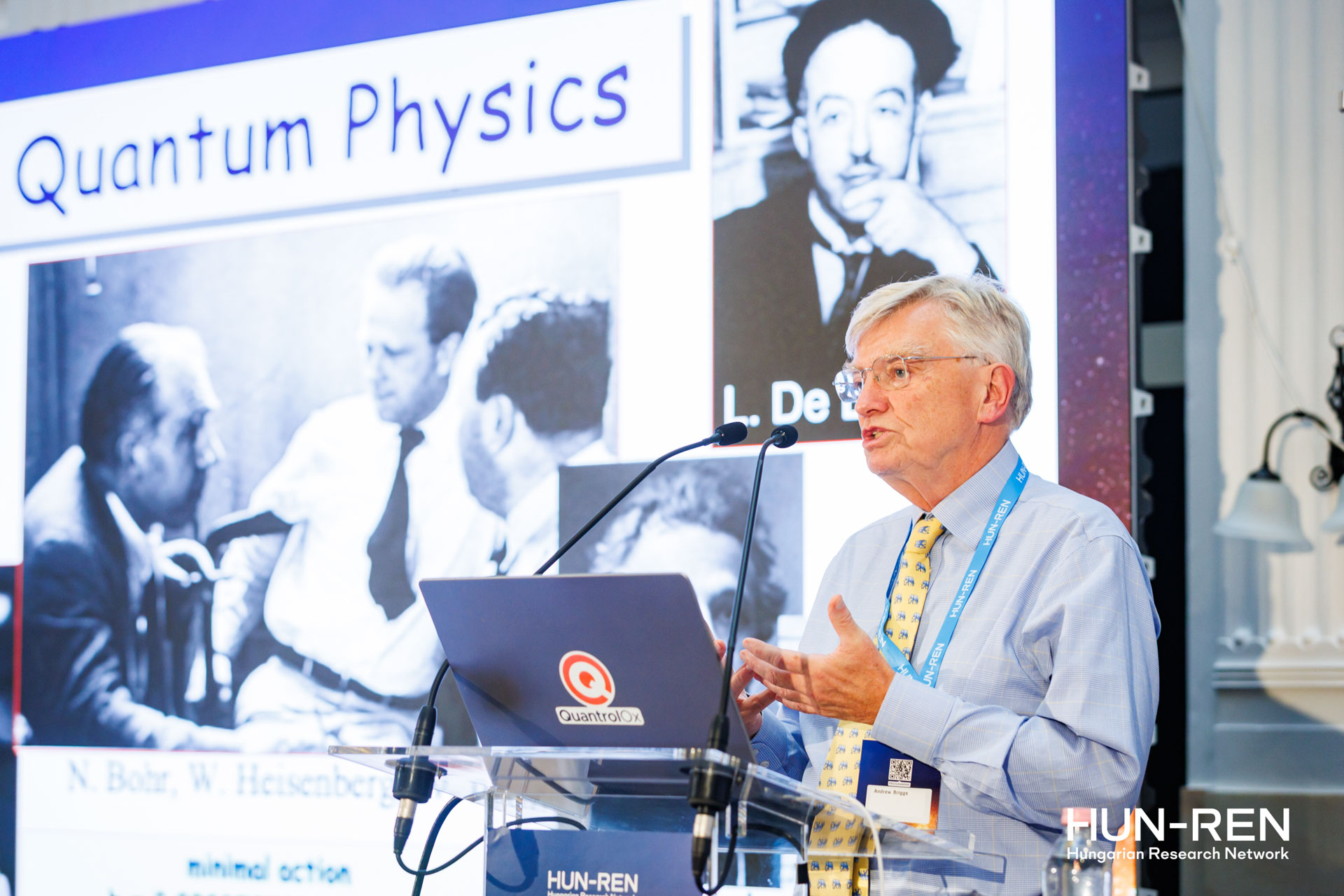
Fotó: DKP Visual
The day’s final panel discussion featured Mark Harris, Director of the Ian Ramsey Centre for Science and Religion; Orsolya Ferencz, Ministerial Commissioner for Space Research at the Ministry of Foreign Affairs and Trade; and Gábor Kutrovátz, lecturer in the Department of Philosophy and History of Science at Budapest University of Technology and Economics (BME) and a historian of science. The panellists agreed that technology is not an end in itself but a means, and that what truly matters is how we use it for the good of humanity. They maintained that scientific progress is always underpinned by human moral choice: technical knowledge has value only when it rests on ethical foundations.
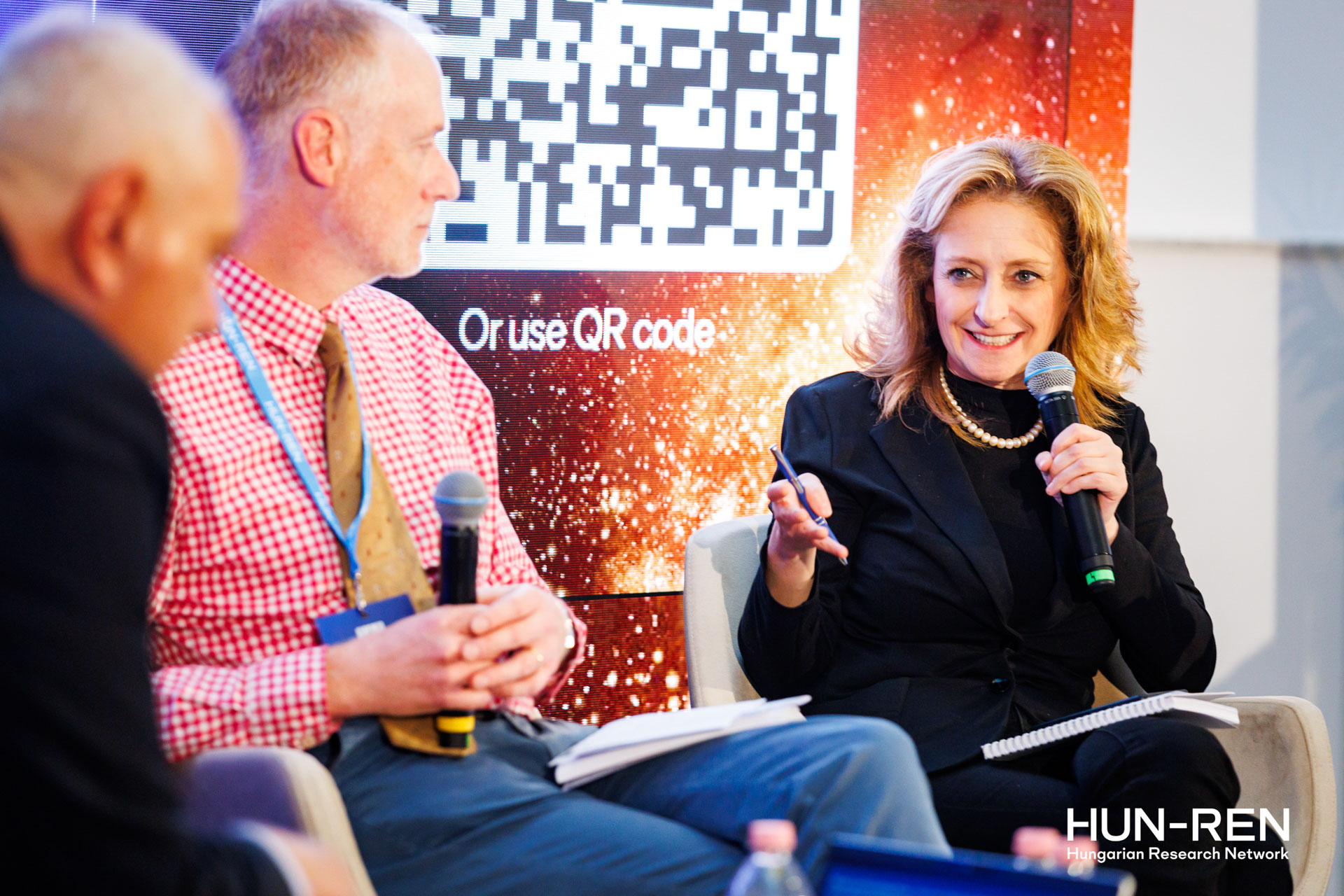
Fotó: DKP Visual
